Latest News

"CATAGEN Limited: Pioneering Sustainable Aviation Fuel Development with EU SAF Clearing House
CATAGEN Limited, a trailblazer in Net Zero technologies, has achieved a significant milestone by becoming the first company to submit a sample of its sustainable aviation fuel (SAF) to the newly established EU SAF Clearing House.

"Shark Fitbit" Provides First-Ever Data on Basking Shark Response to Boat Strike
In a groundbreaking study, a collaborative team fitted a "shark fitbit" with an integrated camera to a 7-metre female basking shark in County Kerry,

Wastewater Heat Recovery Solution from Trinity Earns Runner-Up Prize in Sustainable Development Goals Challenge
Researchers from the School of Engineering, School of Natural Sciences, and Trinity Business School at Trinity have secured second place in the Science Foundation Ireland-Irish Aid Sustainable Development Goals Challenge, focused on SDG 13 (Climate Action).

Prof. Brian Caulfield Appointed Associate Editor of "Sustainable Cities and Society"
We are delighted to announce that Professor Brian Caulfield of Trinity College Dublin has been appointed as an Associate Editor of the prestigious journal "Sustainable Cities and Society."

Trinity College Dublin Launches €1.3 Million ‘Twilight’ Project to Revolutionise Optical Networks with Digital Twin Technology
In a significant move set to transform the landscape of optical networks, Trinity College Dublin has announced the launch of the €1.3 million ‘Twilight’ project. This cutting-edge initiative aims to leverage digital twin technology to facilitate rapid and disruption-free advancements in optical networks

Irish Peat Soils – Vital for the Environment – Are More Extensive Than Previously Thought
New data indicates that Irish peat soils cover 13% more area than previously estimated, making these updated peat soil maps essential for land use planning. Peat soils play a critical role in absorbing greenhouse gases (GHGs) and addressing some of the most significant environmental challenges in Ireland.

Sustainable Aviation Fuel Research Facility Opens at New Global Headquarters at SMBC Aviation Capital
The Sustainable Aviation Fuel (SAF) Research Facility at Trinity College Dublin has found a new home with the official opening of SMBC Aviation Capital’s global headquarters at Fitzwilliam 28 in Dublin’s city centre. This facility, co-funded by Ryanair and Science Foundation Ireland, aims to support the sustainability of the aviation sector.

Minister Martin Heydon Announces €22.3 Million Funding with a Spotlight on the Farmland Nature Credits Project at Trinity
Today, Minister of State with special responsibility for Research and Development at the Department of Agriculture, Food and the Marine, Martin Heydon T.D., announced a significant investment of €22.3 million in grant aid for 21 new research projects.
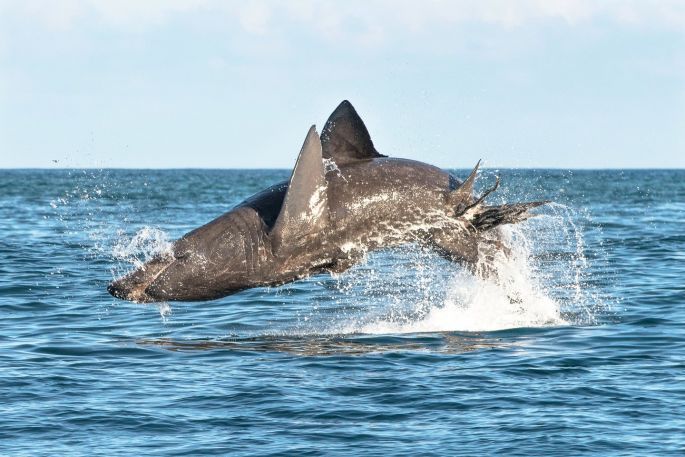
Great white sharks in Ireland? International team plots September search
A group of Irish shark scientists will this September host OCEARCH, a US-based great white shark research non-profit, with the goal of documenting the first records of the famous species in Irish waters.

Trinity Excellence in Teaching Awards 2024: Celebrating Exceptional Educators
The Trinity Excellence in Teaching Awards 2024 honoured outstanding educators from across the university including academics from three E3 schools of Computer Science & Statistics, Engineering, and Natural Sciences, recognising their exceptional contributions to teaching and student development.

Winners of the Prestigious 2024 iCRAG Awards Announced at Annual iCRAG Summit
At the annual iCRAG Summit, the winners of the 2024 iCRAG Awards were celebrated in a grand ceremony attended by 100 iCRAG members. The event underscored the Centre’s commitment to recognising and fostering excellence in geoscience research and highlighted the achievements of its outstanding researchers.

Amplify Your Engagement with E3: Connect with Us on Twitter and LinkedIn
E3 is excited to announce our active presence on both Twitter and LinkedIn, platforms where we share valuable insights, updates, and opportunities related to our innovative initiatives.

Hundreds Convene to Rethink Economic Growth in Ireland: From Leaders to Citizens
Hundreds of leaders from politics, policy, academia, and civil society across Ireland have converged for the Rethinking Growth Conference, a pivotal event aimed at redefining the role and nature of economic growth in Ireland. Held at Trinity College Dublin, the conference seeks to shift the focus from mere economic expansion to fostering a wellbeing economy that prioritizes the needs of people and the planet.

Breakthrough Study Reveals Hidden Processes Behind Rare Earth Element Formation
The study, published today in the journal Nanoscale, unveils for the first time how fluocerite, a rare mineral, rapidly forms and transforms into bastnäsite. The occurrence and origin of fluocerite in natural deposits were not fully understood, making it challenging for earth scientists to study this mineral in natural samples.
.jpg)
Trinity Researchers Receive Fulbright Awards for 2024/25
Abdulbaset Alazhare and Mairéad O Donnell from Trinity College Dublin are among the 21 Fulbright Irish awardees for 2024/25, honored this week at Iveagh House.

Are tuna in hot water in Ireland? Ocean warming pushes giant Atlantic bluefin northwards
A new study led by Irish scientists has found giant Atlantic bluefin tuna are moving further north in response to marine heatwaves off the Irish coast.

A cracking discovery – eggshell waste can recover rare earth elements needed for green energy
This egg-cellent discovery has the potential to make a significant impact in the sustainable recovery of rare earth elements (REEs), which are in increasing demand for use in green energy technologies.

Trinity launched the first iteration of ‘Enacting Education for Sustainable Development in Trinity: Introduction to Module/Curriculum Design
Today marks a significant milestone in the commitment to sustainability education at Trinity. Prof. Jane Stout, VP for Biodiversity & Climate Action, and colleagues from various disciplines launched the first interdisciplinary initiative: ‘Enacting Education for Sustainable Development

The crucial role of urban gardens in fighting climate change & creating havens for nature & wildlife
Prof. Jane Stout, VP for Biodiversity and Climate Action, on Radio 1 Drivetime discussing the crucial role of urban gardens in fighting climate change & creating havens for nature & wildlife. Interview from 2:11:28 Listen

What makes some plant groups so successful?
Irish researchers involved in cataloguing the world’s plant species are hunting for answers as to what makes some groups so successful.

The Soundtrack of Success: Unveiling the Impact of Music & Media Technology
A pioneering programme has been nurturing the fusion of music and technology since 1996 – the MPhil in Music & Media Technologies (MMT). As Trinity College Dublin currently seeks applicants for this prestigious programme, it’s worth delving into the significance of Music & Media Technology to the Irish economy.

Trinity twelve secure funding for new healthcare, climate and tech research
The successful dozen will lead or co-lead a total of 11 STEM-related research projects via Science Foundation Ireland - Frontiers for the Future programme, which is funded in collaboration with the Sustainability Energy Authority of Ireland (SEAI).

Trinity Spinout Altach Secures €1.2 Million Investment to Revolutionise Cartilage Injury Treatments
Altach Biomedical Ltd, a medical device company supported by NLC Health Ventures and a spinout from Trinity College Dublin, has secured a €1.2 million investment to tackle the urgent need for better treatments for articular cartilage injuries, a significant contributor to osteoarthritis.

New research unveils extreme complexity in formation of rare earth mineral vital for tech industry
In a ground-breaking study, researchers from Trinity have unveiled that myriad, intricate factors influence the genesis and chemistry of bastnäsite and rare earth carbonates, which are critically needed for today’s tech industry and its hardware outputs.

Government announces €104 million investment for science research
Trinity is a partner institution with three of the four research centres announced today by Science Foundation Ireland as recipients of the funding.

Researchers launch new app providing personalised driving feedback to promote electric vehicle adoption in Ireland
In a bid to revolutionise transportation habits and combat climate change, researchers from the School of Engineering at Trinity have unveiled the TRACT EV app, designed to encourage the widespread adoption of Electric Vehicles (EVs) across Ireland.

Ryanair and Trinity extend sustainable aviation research partnership
Ryanair, Europe’s no. 1 airline, announced today the extension to the end of the decade and made a further €2.5 m donation (€4 m total) to fund the Ryanair Sustainable Aviation Research Centre.

Pioneering Solutions for Global Challenges
The Kinsella Challenge-based E3 Multi-disciplinary Project Awards have invested in new Ph.D. talent. This initiative fosters challenge-based and cross-disciplinary research to tackle the most pressing global challenges of our time.

Co-Centre for Climate + Biodiversity + Water launches as over 100 stakeholders come together to shape a more sustainable future
The new Co-Centre will deliver solutions to the most pressing challenges posed by climate change, biodiversity decline and water degradation across Ireland, Northern Ireland and Great Britain.

TRACT EV app | Trinity College Dublin Engineers Launch Innovative App Promoting Electric Vehicle (EV) Adoption
In a bid to revolutionise transportation habits and combat climate change, School of Engineering at Trinity has unveiled the TRACT EV app, a cutting-edge smartphone application designed to encourage the widespread adoption of Electric Vehicles (EVs) across Ireland.
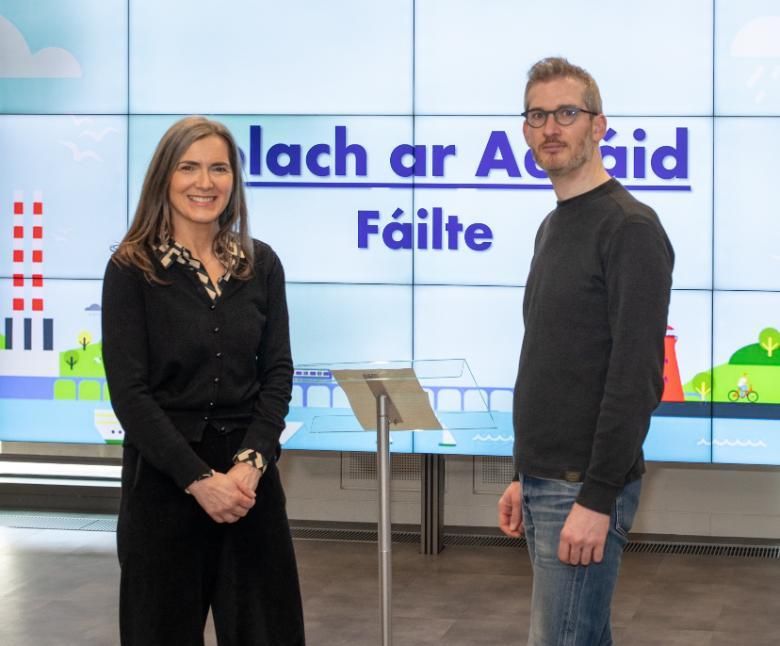
Gaelcholáistí are Climate Smart!
An Taisce, along with Prof. Anna Davies and Dr. Stephan Hügel, from Geography in the School of Natural Sciences at Trinity College Dublin, launched a new Transition Year module called ‘Climate Smart’ with student representatives from Scoil Chaitríona and Coláiste Chilliain.

New project aims to bring down the cost of offshore wind turbines
David Igoe, Assistant Professor in the School of Engineering at Trinity, will use a newly secured Sustainable Energy Authority of Ireland (SEAI) grant of about €250,000 to support research into the effects of pile ageing for offshore wind foundation design.
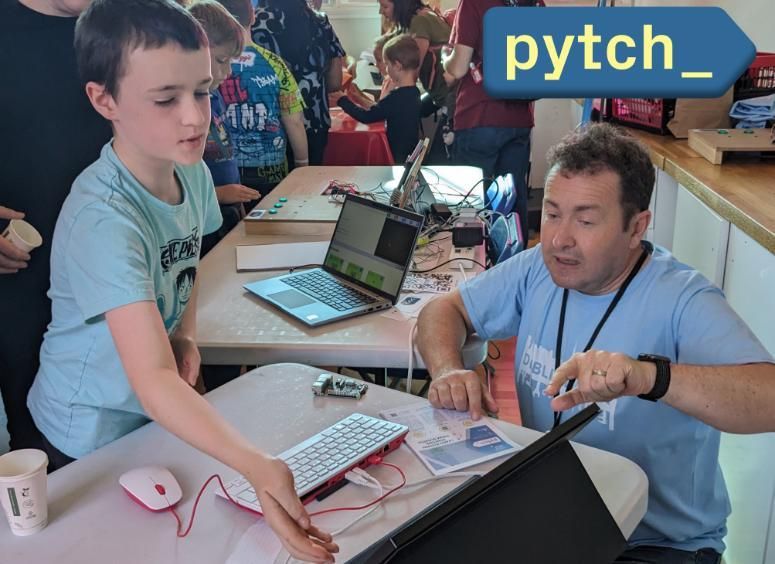
Computer scientists release new Pytch web-app to help students write their own programmes
The new version of the free “Pytch” app is the fruit of a development process in which a community of young coders and educators around the world have worked to create and improve a fantastic resource for students and new programmers.

Harnessing the Power of Nature: Willow Trees Revolutionise Wastewater Treatment in Rural Ireland
School of Engineering at Trinity College Dublin Environmental Engineering group is revolutionising rural wastewater treatment using willow trees, offering hope for areas with poor draining soils.
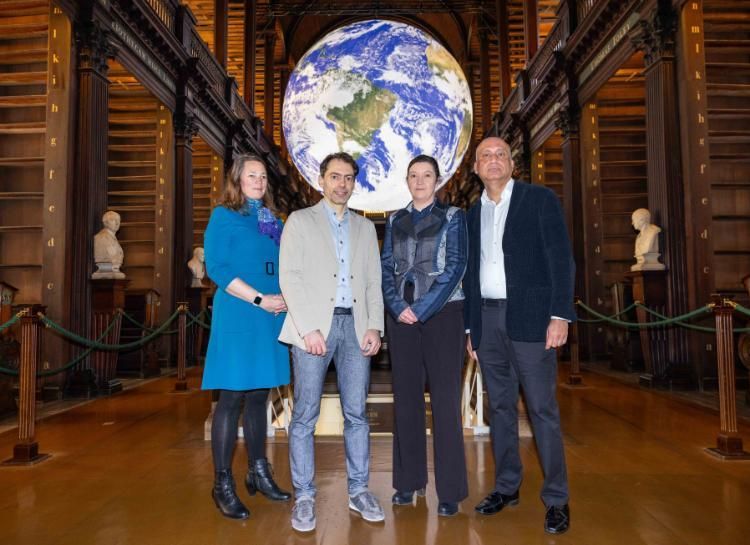
ESB and Trinity’s ADAPT and CONNECT research centres to accelerate technology innovation in energy sector
The research involves two main projects with a goal of enabling large energy users to make better energy choices, helping the environment and supporting the green agenda implemented by the Irish Government.

What I learned: How a postgrad helped my career
Claudia Bailey was attracted to a course at Trinity due to its inaugural year status, offering her the chance to contribute to innovative learning. The international diversity of the student body enriched her experience, fostering a diverse range of perspectives. This interdisciplinary programme covered engineering, environment, and emerging technology topics, providing a comprehensive knowledge base. Bailey attributes her current role as a technology and engagement manager at Smart Docklands to the interdisciplinary approach of the course, emphasizing its value in preparing students for impactful roles in technology and urban development. Read more about her experience at Trinity

Trinity College Dublin School of Engineering Academics Win 2023 Haagen-Smit Prize for Groundbreaking Air Pollution Research
In a momentous achievement for School of Engineering at Trinity, a team of esteemed academics has clinched the prestigious 2023 Haagen-Smit Prize for their innovational research published in the renowned journal Atmospheric Environment. Professors Aonghus McNabola, Brian Broderick, Assistant Professor John Gallagher, and Adjunct Professor Prashant Kumar were honoured with this esteemed award, recognising their exceptional contribution to the field of air pollution science.
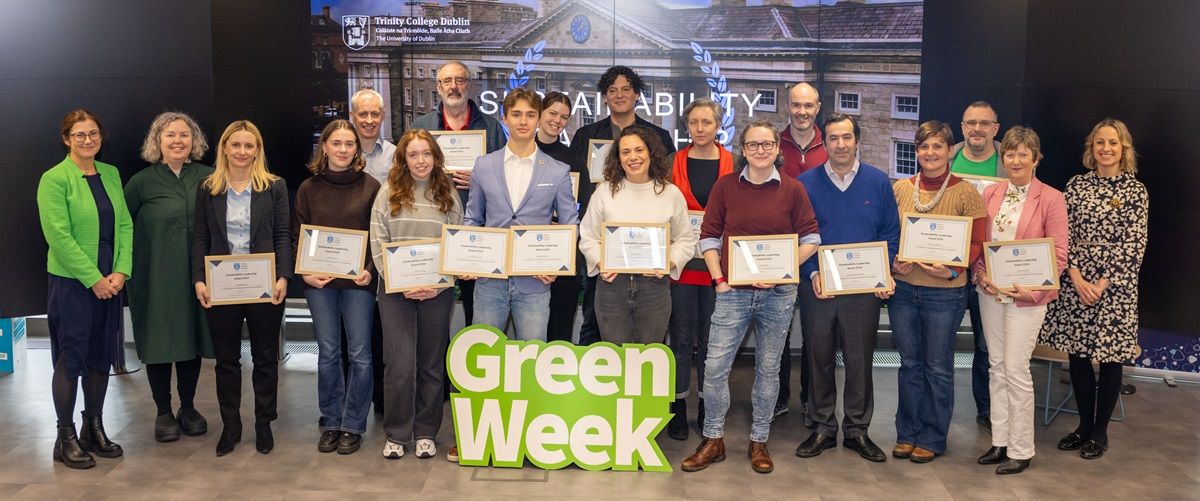
Green Week 24 - Healthy Planet, Healthy People
This has been Trinity’s 22nd year marking Green Week. The event started in 2003 to honour the late Professor Simon Perry, who started the College Recycling and Environment Committee, now known as the Green Campus Committee.
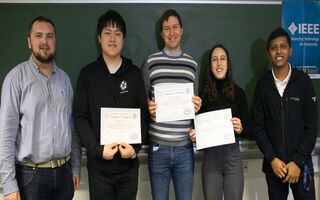
The IEEE Student Branch hosts the 2nd Threesis on 19th February 2024
Threesis is the annual flagship event of the local IEEE Student Branch of Trinity College Dublin, where early-stage researchers are invited to present an accessible 3-minute presentation of their research intended for a broad audience. The event was open-to-all with more than 40 attendees participating, with a broad pool of audience members with diverse expertise.
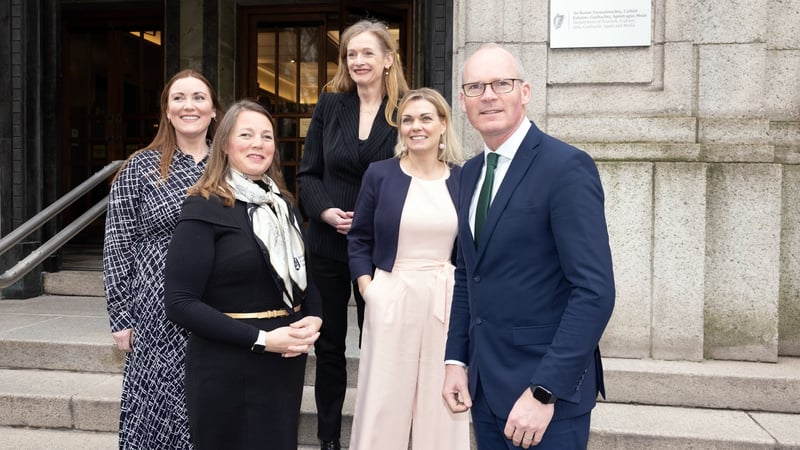
Learnovate to receive €9.6m in funding from EI and IDA
The technology centre for the future of work and learning, Learnovate, is to receive €9.6m in funding to help Irish based tech companies address the emerging skills gap.
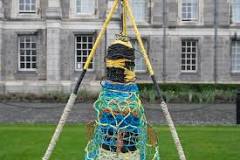
Trinity Green Week commences with sightings of artworks across campus
Celebrations for Green Week commenced yesterday and will continue to be celebrated throughout the week, working in tandem with Health and Sports Week which will commence this Thursday. A total of 15 events have been organised for Green Week, with Monday being the busiest day with five events. Several long term initiatives with the goal to make Trinity more sustainable have been launched today.

Green Week 2024
Green Week begins next Monday, 11 March and will be a week of community, learning and acknowledging the hard work of students and staff that work diligently to make Trinity a more sustainable Campus. Our theme for this year is ‘Healthy Planet, Healthy People’ because we know that our health and the health of our planet are inextricably linked. Click here to find out more.

Introducing KineMo - Trinity College Dublin School of Engineering Breakthrough in Athlete Kinematics Tracking
Trinity College Dublin School of Engineering is thrilled to unveil KineMo, a revolutionary whole-body kinematics tool born out of research within the Discipline of Mechanical, Manufacturing, and Biomedical Engineering.

Trinity researchers to develop new tools to predict future car types in Ireland
New forecasting tools to predict the next generation of private vehicle fleets in Ireland will be developed by a team of economists and civil engineers in Trinity College Dublin.
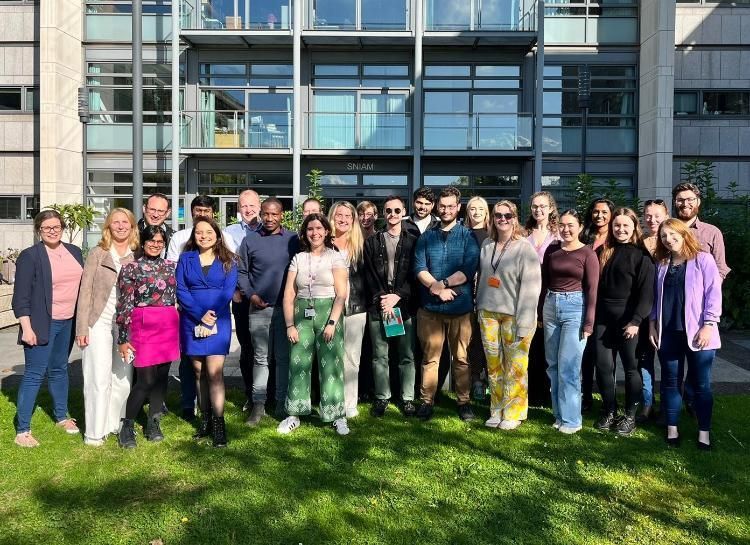
Trinity duo win SFI Discover Programme funding to inspire STEM public engagement
Two researchers from Trinity – Dr John O’Donoghue and Cian McLoughlin – have won Science Foundation Ireland Discover Programme funding to lead projects that will encourage a deeper understanding of science, technology, engineering and mathematics (STEM).
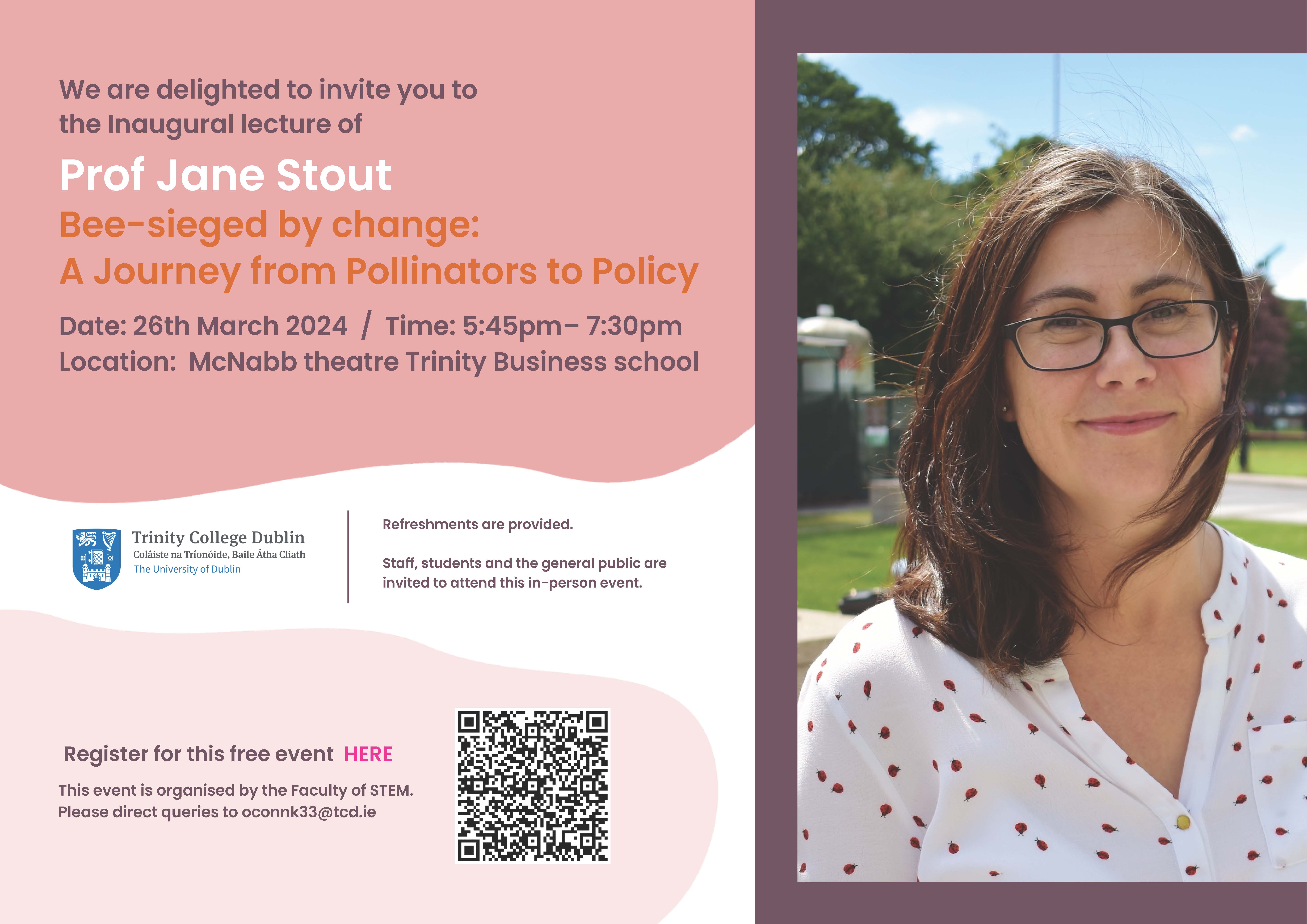
Prof Jane Stout - inaugural lecture - 26th March 2024
The Faculty of STEM invites you to the inaugural lecture from Prof Jane Stout on ‘Bee-sieged by change: A Journey from Pollinators to Policy’ on 26th March 2024 at 5.45pm – 7.15pm (in person only) in the McNabb theatre, Trinity Business School. This is a free event with refreshments / wine reception. Staff, students, and the general public are invited to attend this in-person event.
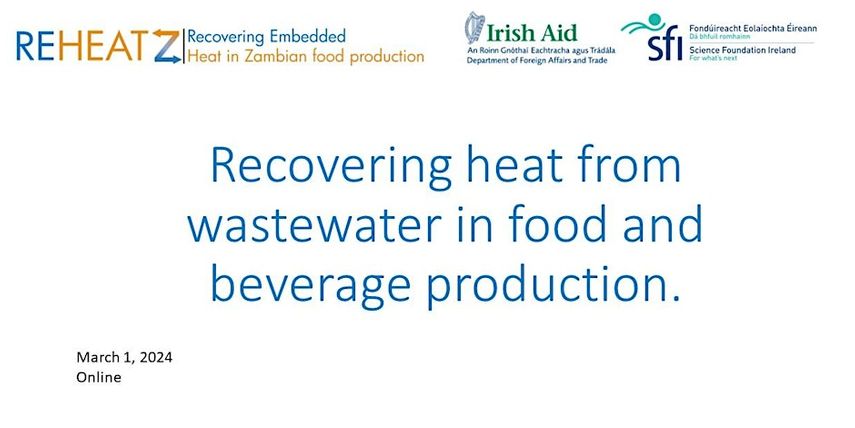
Trinity College Dublin Hosts Webinar on Emissions Reduction in Zambia
School of Engineering at Trinity is gearing up for an enlightening webinar showcasing the pioneering research project, REHEATZ (Recovering Embedded Heat in Zambian food production), led by Professor in Energy and the Environment; Aonghus McNabola from the Department of Civil, Structural, and Environmental Engineering. The webinar is scheduled for 11:30 to 12:30 Zambian time (09:30 to 10:30 Irish Standard Time).
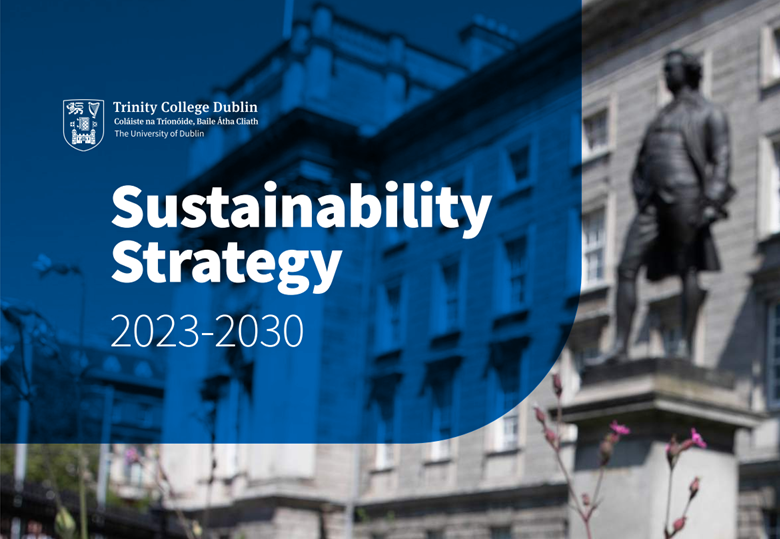
Trinity has a new Sustainability Strategy
Trinity has recently launched Trinity’s new Sustainability Strategy which focuses on climate action, biodiversity and health and was developed in conjunction with the college community. The Strategy is supported by an action plan which has 260 actions across the areas of education, research, operations and community.

Secret, undeclared pesticide ingredients may pose a risk to people, pollinators and the environment
Scientists are calling for greater transparency in the full ingredient list of pesticides, arguing that farmers and consumers deserve to know exactly what is in them.
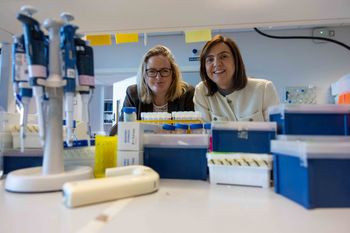
Researchers win €5.3 million Wellcome Trust award to tackle fatal bloodstream infections
This female-led project brings together experts from the Trinity Biomedical Sciences Institute, APC Microbiome Ireland, a world leading SFI Research Centre based at University College Cork (UCC), the University of Exeter and the University of Bristol.

New €2.3 million project seeks to deliver next-gen, sustainable 6G networks
The collaborative ENERGISE project, led by researchers from CONNECT at Trinity College Dublin, and involving Intel and other key industry partners targets significant energy reduction in mobile networks.

Trinity researchers secure EPA funding to support sustainability and societal transformation projects
The funding, from the 2023 EPA call, will support innovations and the development and implementation of policies in Ireland, as well as developing research capacity in strategically important areas. The funding will also help build transdisciplinary research capacity and talent in Ireland in key areas relating to sustainability transitions and societal transformations.
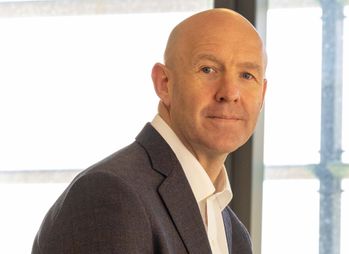
Trinity welcomes Prof. John D. Kelleher as Chair of Computer Science and Director of ADAPT
The combined position will see Prof. Kelleher taking responsibility for further enhancing Trinity’s leadership in the fundamentally important ICT area of AI and providing long-term strategic leadership and vision for the ADAPT Centre to achieve and sustain research excellence.

Prof Simon Wilson will give his inaugural lecture on 27th Feb 2024 at 5.45pm – 7.15pm
The Faculty of STEM invites you to this inaugural lecture on “Being certain about your uncertainty: a brief history of probability, risk and the foundations of data science” on 27th Feb 2024 at 5.45pm – 7.15pm (in person only) in the Ui Chadhain lecture theatre, arts block, Arts Building, Trinity College Dublin.

“It might sound like science fiction fantasy, but AI urbanism is not far away”
An international group of researchers is warning against the creation of AI-led autonomous cities, outlining fears that diverse AIs may eventually perform social and managerial functions in an unsupervised manner without human input.
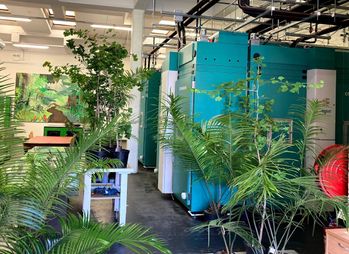
New lab allows scientists to test impacts of climate change in precisely controlled infrastructure
Scientists in Ireland are now able to study the impacts of past, current and future climate change in precisely controlled climatic and atmospheric conditions.This is thanks to the launch of a new Variable Atmospheric and Light (VAL) laboratory, which was unveiled at Trinity College Dublin.
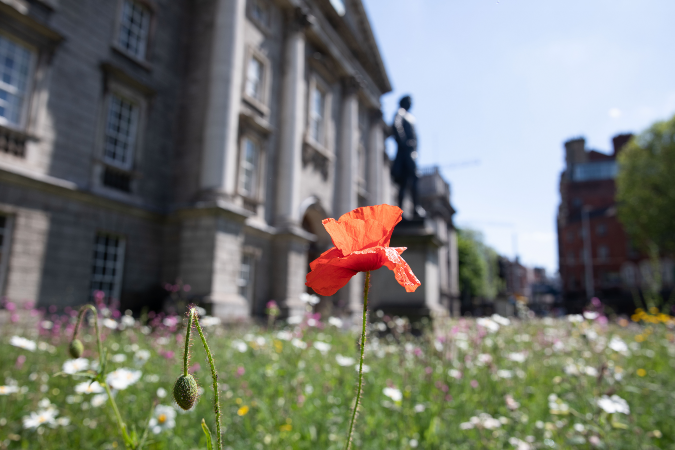
Mindset change needed to fight biodiversity loss
The launch of the government’s fourth National Biodiversity Action Plan marks a significant turning point in Ireland’s approach to biodiversity loss. For the first time, the plan is not simply aspirational, but statutory, mandating action and accountability at the highest levels. This signals a realignment of biodiversity loss to a status comparable to climate change, which has undoubtedly dominated public and private discourse in recent years.

Trinity College Dublin Centre for Biomedical Engineering Scholars Excel at Bioengineering in Ireland 2024
Trinity College Dublin’s School of Engineering showcased its commitment to cutting-edge research at the prestigious 29th Annual Conference of the Section of Bioengineering of the Royal Academy of Medicine in Ireland (BinI 2024), held at the magnificent Slieve Donard Hotel in Newcastle, Ireland.
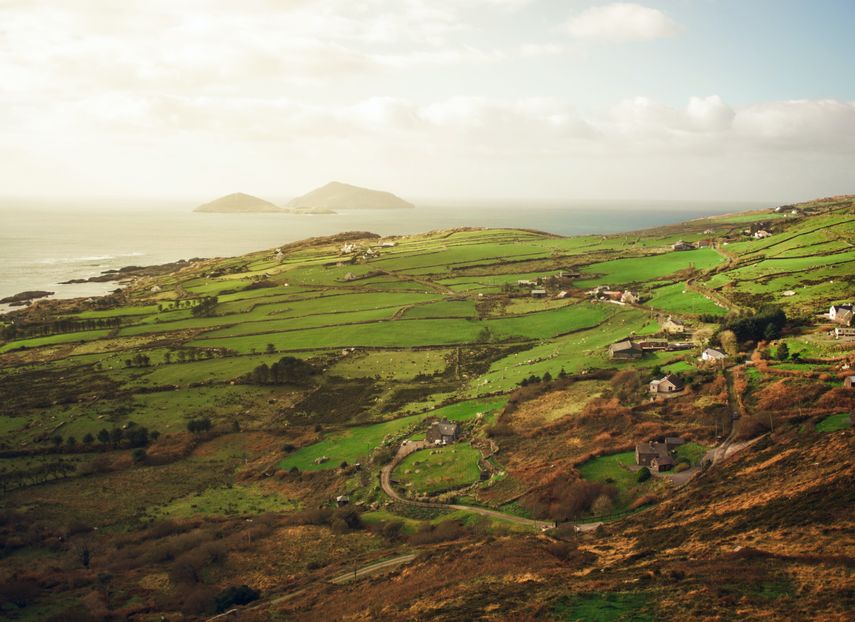
Trinity research pivotal in Ireland’s Climate Change Assessment, with heat extremes to become more frequent and severe
Technological advancements will only deliver short-term benefits if Ireland doesn’t tackle steps towards transformative change according to the report, which saw contributions from Trinity researchers.

Trinity boosts sustainable aviation fuel research with new partnership
Trinity College Dublin and SMBC Aviation Capital have today announced the Trinity College Dublin SAF Research Facility at SMBC Aviation Capital.
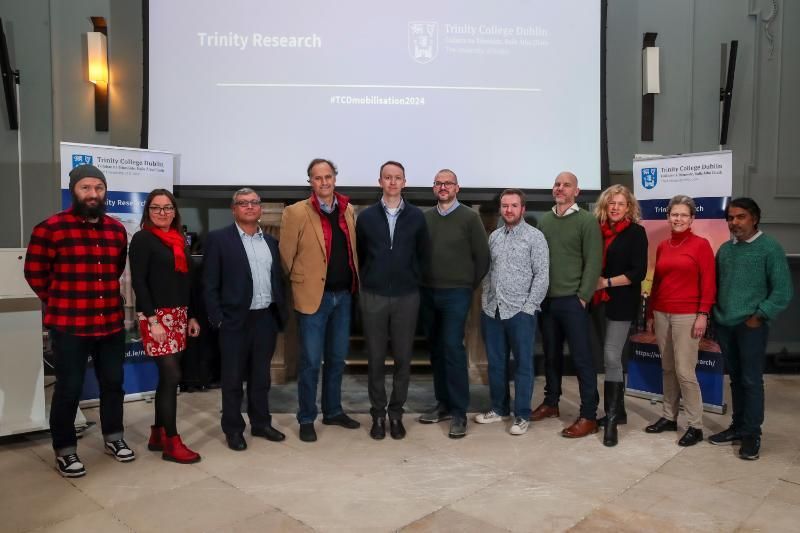
Researchers and professional support staff meet at inaugural Coordinator Mobilisation event
The event allowed eight PIs leading large-scale Horizon Europe Pillar 2 or European Innovation Council projects to introduce these projects and to showcase the important work of key teams around college who provide post-award support.

Trinity bioengineer wins ERC Proof of Concept Award to develop non-surgical lower back pain treatment
Professor Conor Buckley’s project iDISC uses next-generation injectable biomaterials for tissue repair. The development of injectable biomimetic hydrogel systems may facilitate earlier interventions aimed at halting the degenerative process.

AI could make cities autonomous, but that does not mean we should let it happen
Prof Federico Cugurullo believes we should be very careful before handing control of our cities to AIs. He writes about AI urbanism and the challenges ahead in this piece for The Conversation.

Professor Viet Pham honoured with IEEE Best Young Researcher Award
Viet, Assistant Professor in Trinity’s School of Computer Science and Statistics, won the Institute of Electrical and Electronics Engineers Communications Society award for the Europe, Middle East and Africa region.
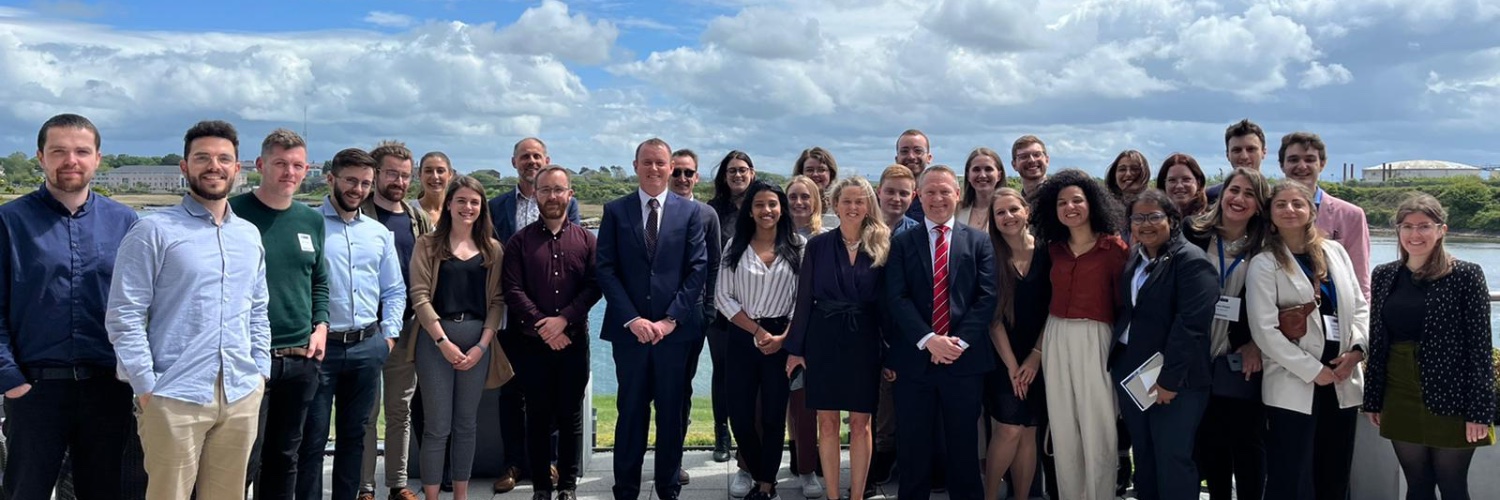
Trinity Centre for Biomedical Engineering Research Day Showcases Innovation and Collaboration
On Monday 11th December Trinity College Dublin’s School of Engineering hosted the Trinity Centre for Biomedical Engineering (TCBE) Research Day, a dynamic and enlightening event that brought together experts, researchers, and enthusiasts in the field of biomedical engineering.
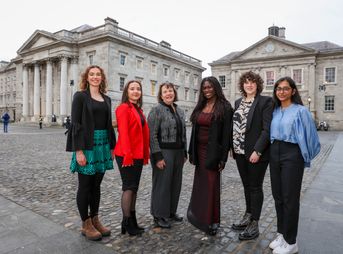
Students receive 2023 Three Ireland Connect to STEM Scholarships
Trinity this week announced five student recipients of the 2023 Three Ireland Connect to STEM Scholarships for Women at an evening ceremony hosted by Three Ireland.

Bees are still being harmed despite tightened pesticide regulations
A new study has confirmed that pesticides, commonly used in farmland, significantly harm bumblebees – Ireland’s most important wild pollinators. In a huge study spanning 106 sites across eight European countries, researchers have shown that despite tightened pesticide regulations, far more needs to be done.

Trinity to headquarter Climate+ Co-Centre
The new €41.3 million research centre will be the home of research, innovation, and policy development across the interlinked challenges of climate change, biodiversity loss, and water degradation on the islands of Ireland and Britain.
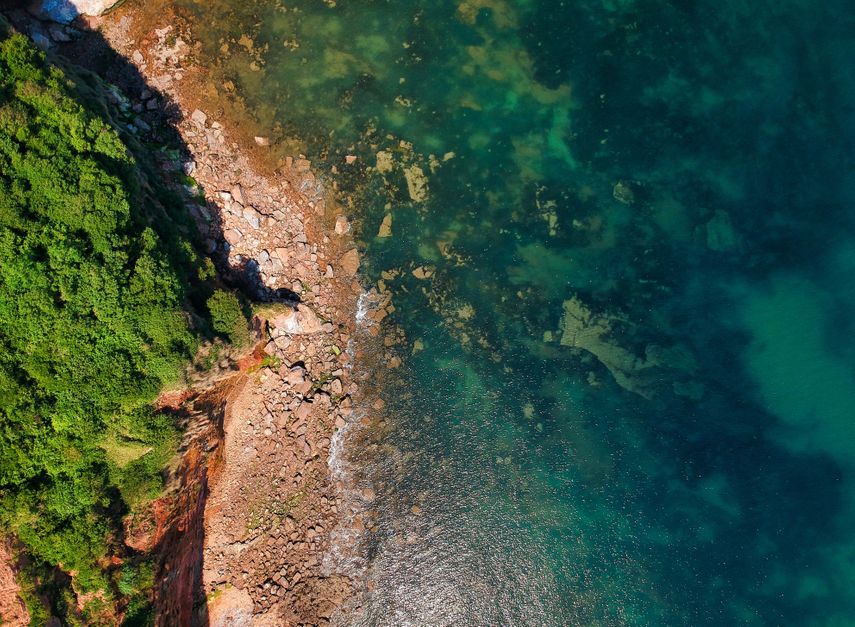
Deoxygenation levels similar to today’s played key role in marine extinctions during major past climate change event
Newly published research serves as a further warning that present day marine ecosystem stability is likely more fragile than apparent. And marine deoxygenation is projected to significantly increase in response to global warming and increased nutrient run-off from continents.

Professor Anna Davies wins Irish Research Council Impact Award
Anna, Professor of Geography, Environment and Society at Trinity, has won the 2023 Irish Research Council Impact Award for her longstanding commitment to world-class research that focuses on facilitating action for a more sustainable society.

Seven Trinity researchers and staff receive IRC Research Ally awards
The Research Ally awards recognise the recipients’ role in supporting and sustaining the research community, and how they help to foster a positive academic culture based on equality, inclusivity, and respect. Earlier this year, postgraduate students, postdoctoral fellows, academic and research active staff were invited to nominate the mentors, supervisors, research officers and technical support staff who support their work and careers.

Fewer staff, students are walking and cycling, survey finds
The numbers walking fell to 20% from a high of 28% in 2018, while the cycling rate was sharply down (-59%) from 2011.

Plants might be able to absorb more CO2 from human activities than previously expected
This research paints an uncharacteristically upbeat picture for the planet, but despite the headline finding, the environmental scientists behind the work say it does not mean the world’s governments can take their foot off the brake in their obligations to reduce carbon emissions as fast as possible.

Accounting for nature a priority for Ireland’s prosperity – new report
The team behind a pioneering project for nature, INCASE, has issued a series of recommendations to value, restore and protect Ireland’s resources through applying a natural capital accounting framework as a national priority.
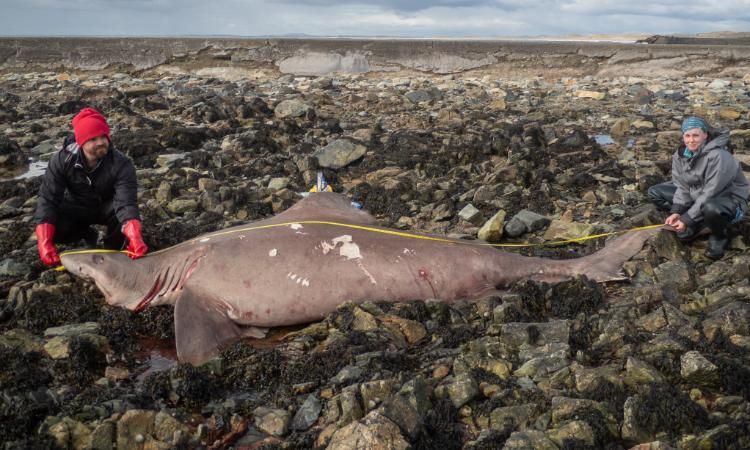
Why a surprise discovery, warming seas and the demise of the ‘Meg’ may spell trouble for sharks
Some unexpected shark strandings and subsequent surprises following autopsies have, ironically, taken marine biologists millions of years back in time as they look to the future with concern.

Trinity joins pilot international sustainability education programme
Trinity is taking part in the pilot run of Responsible Futures International, an accreditation and supported change programme. Participation and leadership in this pilot demonstrates Trinity’s strong commitment to embedding sustainability and social responsibility across the formal and informal curriculum in partnership with students. Since its launch in the UK in 2014, 35 institutions have worked with their students across take part in Responsible Futures.

Amazon.com CTO Werner Vogels delivers masterclass to Trinity computer science students
Amazon.com Vice President and Chief Technology Officer Dr Werner Vogels delivered a Masterclass entitled ‘From Research to Production: Applying Distributed Computing Concepts to the Real World’ to students on the MSc programme in Computer Science on his recent visit to Trinity

New project chases net-zero renewable energy systems for the Atlantic Area
Researchers from Trinity are leading a €3.2 million project (HY4RES) that will see them develop hybrid renewable energy systems for the green transition of the Atlantic area of Europe.

Adapt and Meta address safe and responsible use of AI in European healthcare
The announcement extends an existing collaboration between the two in response to the European Commission’s (EC) recent legislative proposal to establish a European health data space. The new initiative aims to address value chain challenges in health data sharing.
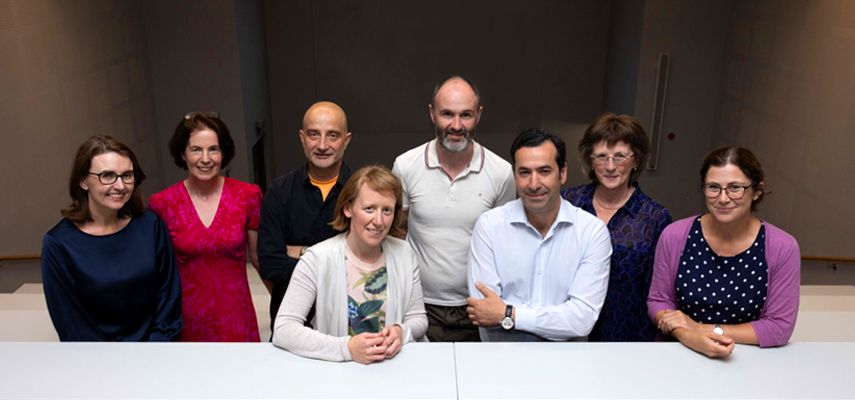
Five Fellows to develop Trinity’s programme of Education for Sustainable Development
Trinity has announced a new strategic initiative to embed Education for Sustainable Development (ESD) throughout the curriculum. Five members of academic staff from across all three faculties have been seconded to work with Trinity’s Centre for Academic Practice (Trinity Teaching & Learning) and Trinity Sustainability.
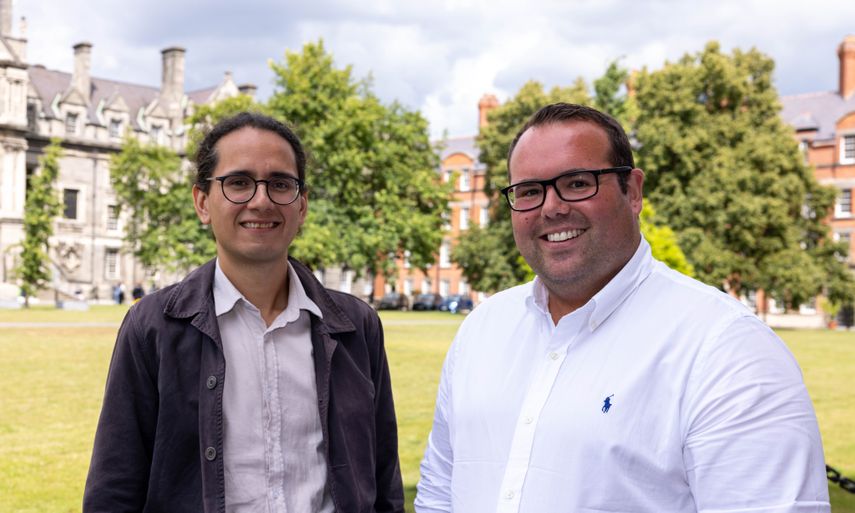
Trinity scientists secure prestigious Royal Society University Research Fellowships
Ecologist Dr Richard Nair and immunologist Dr Craig McEntee have secured the awards, funded in Ireland by Science Foundation Ireland, are given to outstanding scientists in the early stages of their research careers who have the potential to become leaders in their field.

Range of pesticides, including neonicotinoids, found in pollen of different bee species
New research paints a worrying picture for the different species of bees that provide multi-million-euro pollination services in Ireland each year.
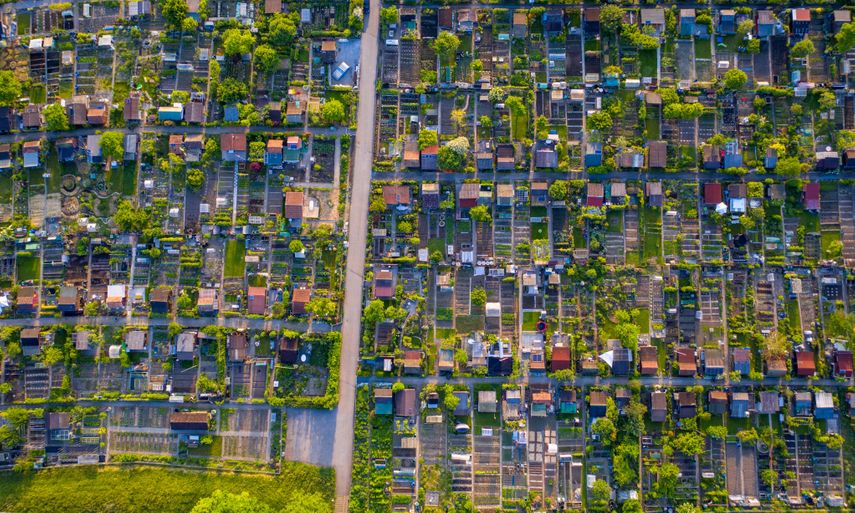
Researchers join National Challenge Fund to help Ireland prepare for green transition and digital transformationt
Six researchers from Trinity – who make up four teams – are among those taking part in the latest round of the National Challenge Fund. While pursuing different projects, they share the goal of helping Ireland prepare for its green transition and digital transformation.

Professor Abeba Birhane named to TIME’s inaugural TIME100 AI list
Professor Abeba Birhane has been honored with a placement on TIME magazine inaugural TIME100 AI list. Her research revolves around the exploration of the complexities and potential shortcomings associated with automating human behavior.
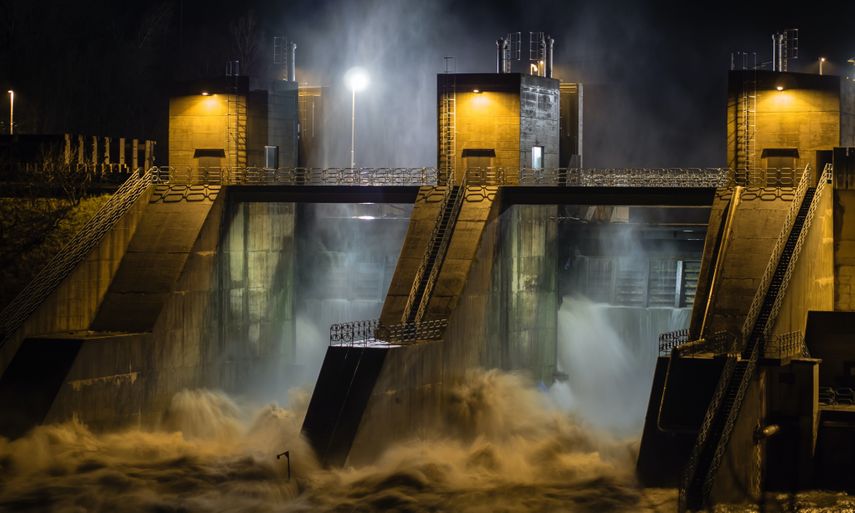
New project will improve EU hydropower sustainability with potential to save €1 billion per year
Trinity researchers have been chosen to lead a €4 .1 million Horizon Europe initiative focused on crafting digital solutions aimed at enhancing the efficiency, flexibility, and sustainability of the current hydropower infrastructure within the European Union.

School of Engineering Researcher Honoured with IABSE Outstanding Paper Award 2023
Prof. Alan O’Connor, Head of the School of Engineering, and his esteemed colleagues have been recognised with the prestigious International Association for Bridge and Structural Engineering (IABSE) Outstanding Paper Award for their exceptional scientific paper

Shark shock – scientists discover filter-feeding basking sharks are warm-bodied like great whites
Approximately 99.9% of fish and shark species are “cold-blooded”, meaning their body tissues generally match the temperature of the water they swim in – but researchers have just discovered the mighty basking shark is a one-in-a-thousand exception.
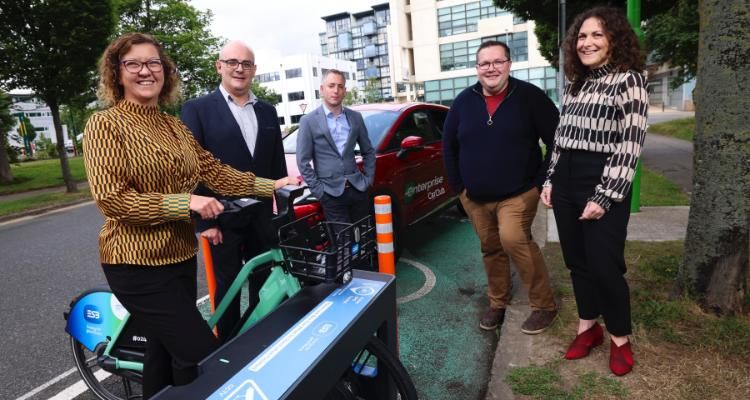
Hubs offering electric cars, e-bikes and e-cargo bikes to test potential of shared e-mobility to decarbonise transport
Researchers from Trinity, together with collaborators from the Atlantic Technological University (ATU), ESB and Enterprise Rent-A-Car, will lead a €1.35 million shared electric mobility project.
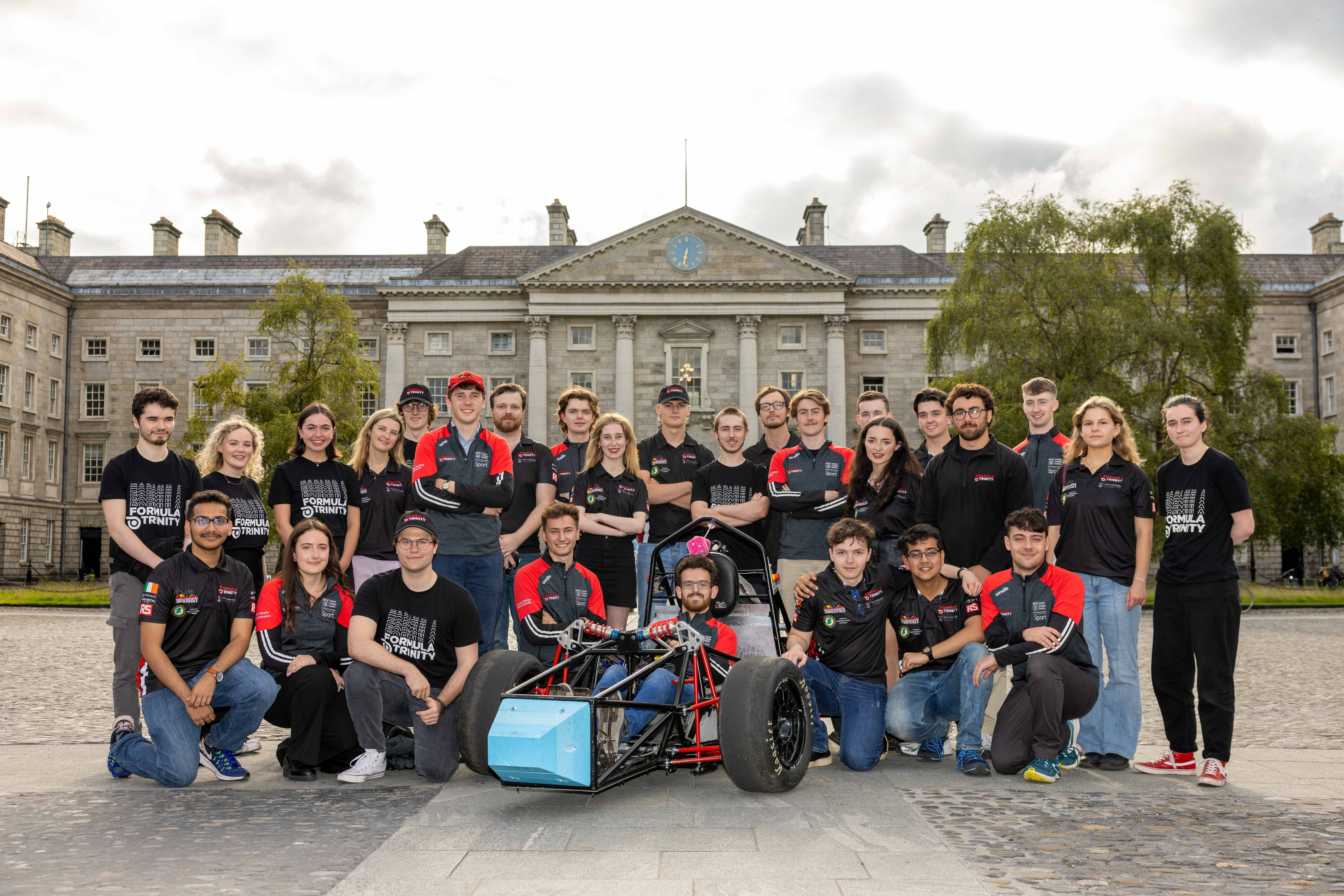
Formula Trinity Unveils Their Cutting-Edge Car at Trinity College Dublin
School of Engineering is buzzing with excitement as Formula Trinity unveiled their latest race car, codenamed “Bertie” on 13th July in front of the iconic Front Square. The team is preparing to embark on an exhilarating journey, as they gear up to showcase their skills and innovation at the renowned International Formula Student competition organised by the Institution of Mechanical Engineers. With the competition celebrating its 25th anniversary this July, Formula Trinity aims to make a lasting impression both in Class 1 and the AI events, solidifying its position as a leading force in student motorsport.
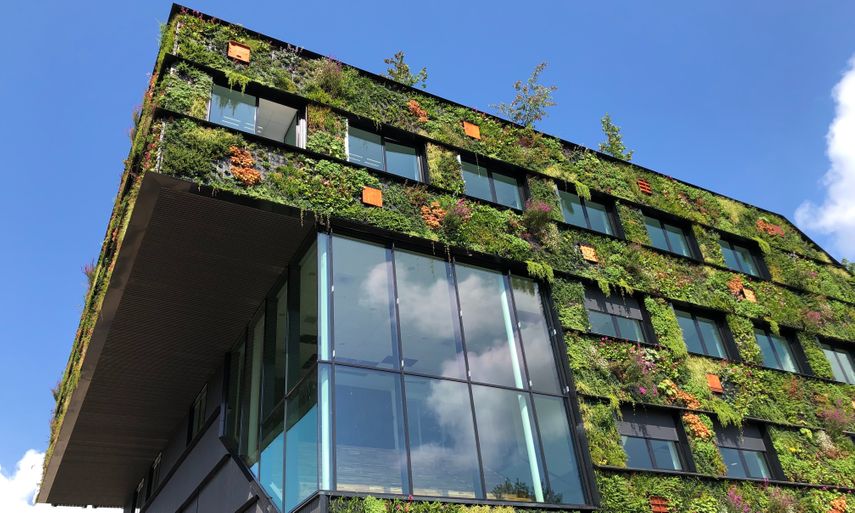
Green Tech Skillnet provides 30% discount on selected Trinity green courses
Trinity is pleased to announce that Green Tech Skillnet, an organisation dedicated to fostering skills and expertise in the field of green technology, will provide a 30% discount for learners pursuing several of green diplomas and micro-credential courses at Trinity College Dublin.

The weeds shall inherit the Earth
Human land use is now comparable to climate in driving global patterns of plant occurrence, with new research showing that species are not affected equally; slow-growing plants like trees are less able to cope with more intensive human land use than disturbance-tolerant species like grasses.

Generative AI models are encoding biases and negative stereotypes in their users
New research suggests that the widespread use of generative AI models like ChatGPT, Bard by Google, and Midjourney can lead to the propagation of incorrect and nonsensical information on the internet, potentially influencing human beliefs. This is particularly concerning as marginalised groups are disproportionately impacted by the dissemination of this fabricated content. Additionally, children are identified as a particularly vulnerable demographic at risk from the negative effects of mass AI fabrication.

Reframing active travel planning is key to creating more cycling and walking-friendly towns and cities
New research indicates that reframing local authority and national planning measures to prioritize walking and cycling over car-centric travel spaces is crucial for Ireland to achieve its emission reduction targets and meet decarbonization goals. Trinity College Dublin researchers analyzed public consultation submissions opposing active travel measures and discovered that opposition often stems from beliefs that contradict national policies aiming to increase active travel journeys. These findings highlight the need to address underlying beliefs and align them with efforts to promote walking and cycling as sustainable transportation options

Cryo conservation – a cool solution to saving species from extinction
In the face of the biodiversity crisis, and alarming data showing a 69% decline in global animal populations since 1970, researchers are banking on a cool solution to help save species from extinction.
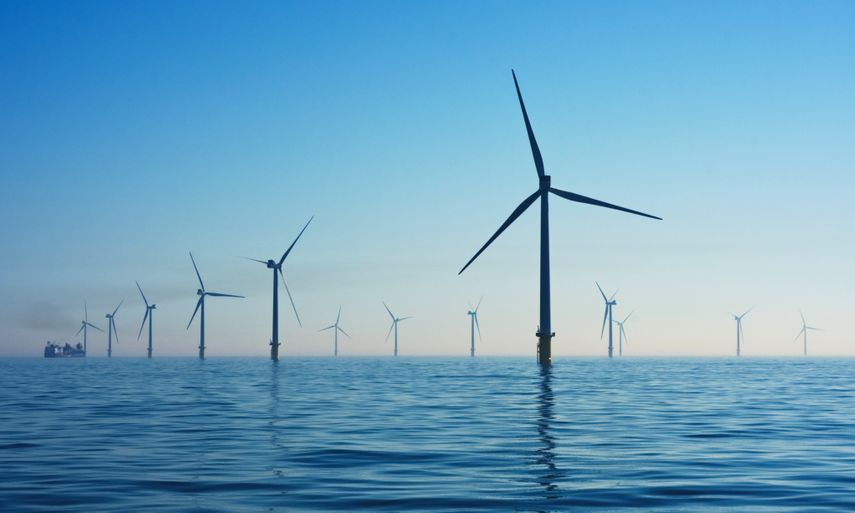
National economies recover faster when countries are powered by renewable energy
Researchers from Trinity looked for patterns in data from 133 systemic economic crises that affected 98 countries over a 40-year span en route to their main finding, which has profound implications for global energy policy.

Information Session: MSc in Electronic Information Engineering at Trinity College Dublin
Are you ready to embark on an exciting academic journey in the field of Electronic Information Engineering? We are thrilled to invite you to an Information Session dedicated to our esteemed MSc program at Trinity College Dublin. Date: Tuesday, June 6th Time: 12:00 pm to 1:00 pm
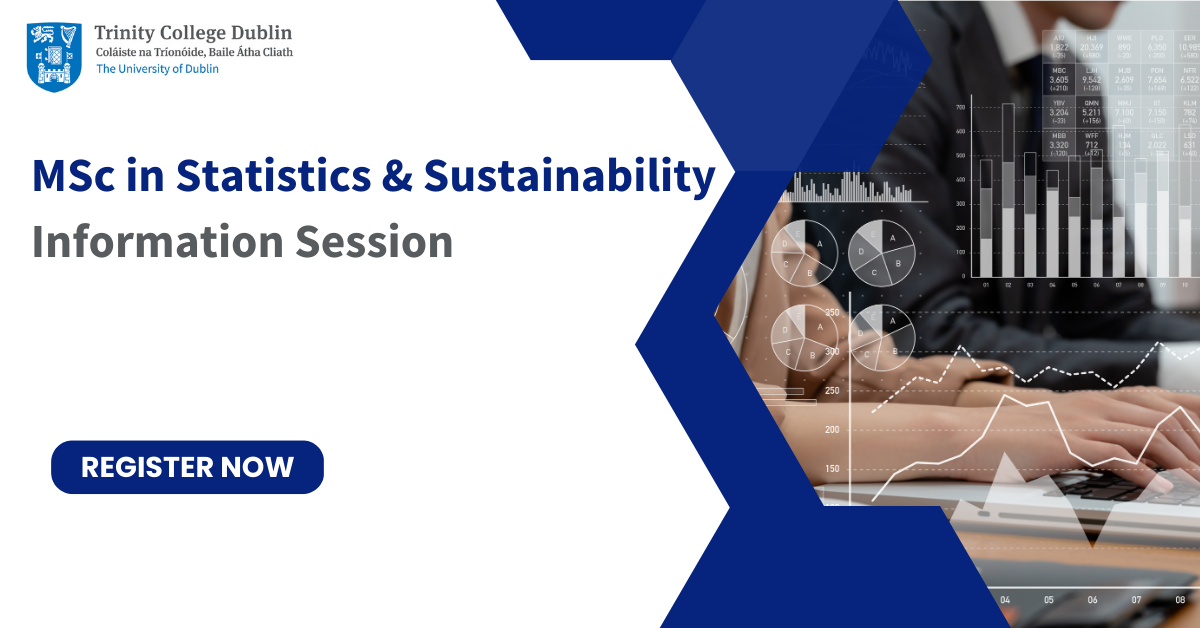
Discover the Intersection of Statistics and Sustainability: Join our Information Session for the MSc in Statistics & Sustainability
The information session will provide participants with a comprehensive understanding of the MSc in Statistics & Sustainability programme, including its curriculum, objectives, and the profound impact it can have on addressing pressing environmental challenges. Date: Friday, June 9th Time: 1:00 pm to 2:00 pm

Postgraduate Diploma in Engineering for Climate Action Information Session 2023
Trinity College Dublin School of Engineering Presents: Information Session for Postgraduate Diploma in Engineering for Climate Action, being held on 16th June, 2023 at 1pm, where you will have the opportunity to learn about our programme and meet our faculty members.

People fear AI tech, but not enough to avoid autonomous cars
A significant percentage of people fear AI tech, but not enough to avoid using autonomous cars when they become available. That is according to new research that goes against the “Frankenstein complex”, where humans are predicted to be hostile to robots and AI because they are afraid of them.
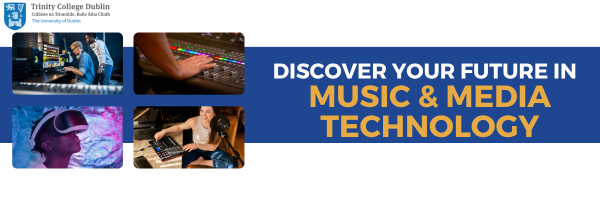
MPhil in Music and Media Technology Information Session 2023
School of Engineering at Trinity is excited to announce the upcoming information session for our MPhil in Music and Media Technology, which will take place on 30th May, 2023 at 3pm, where you will have the opportunity to learn about our programme and meet our faculty members.

Trinity raises Green Flag for commitment to sustainability
Vice President for Biodiversity and Climate Action Jane Stout raised the flag on Friday 28 April, alongside Sustainability Manager Jane Hackett and representatives from the Green Campus Committee.
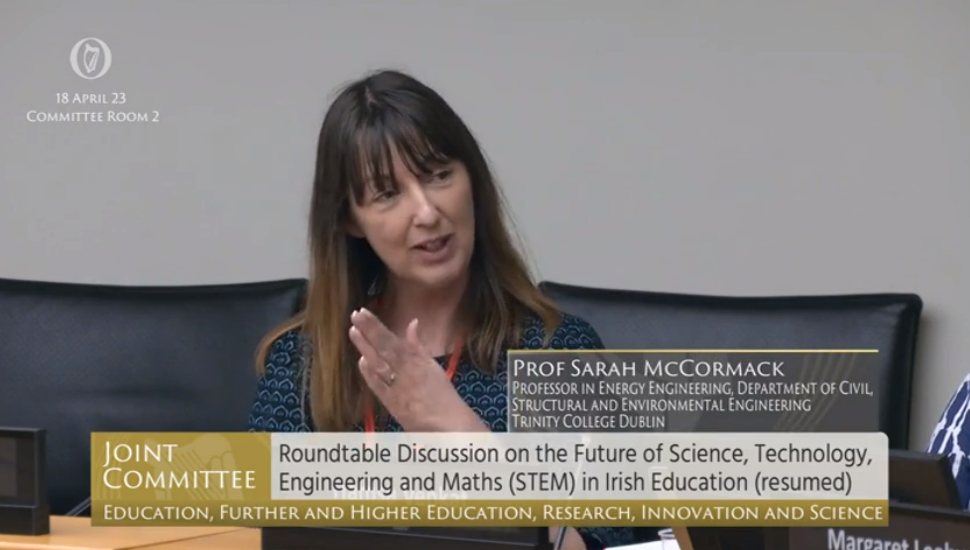
Trinity School of Engineering Professor addresses Roundtable Discussion on the Future of STEM and Gender in Irish Education
Dr Sarah Mc Cormack, a Professor in Sustainable Energy at the Department of Civil, Structural, and Environmental Engineering, was invited to speak to the Oireachtas on the topic of STEM and gender in education.
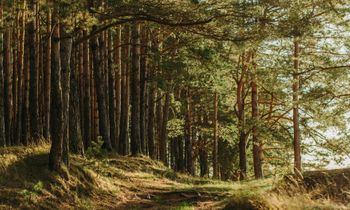
360-million-year-old Irish fossil provides oldest evidence of plant self-defence in wood
An international team of scientists, co-led by Dr Carla J. Harper, Assistant Professor in Botany in the School of Natural Sciences at Trinity, has discovered the oldest evidence of plant self-defence in wood in a 360-million-year-old fossil from south-eastern Ireland.
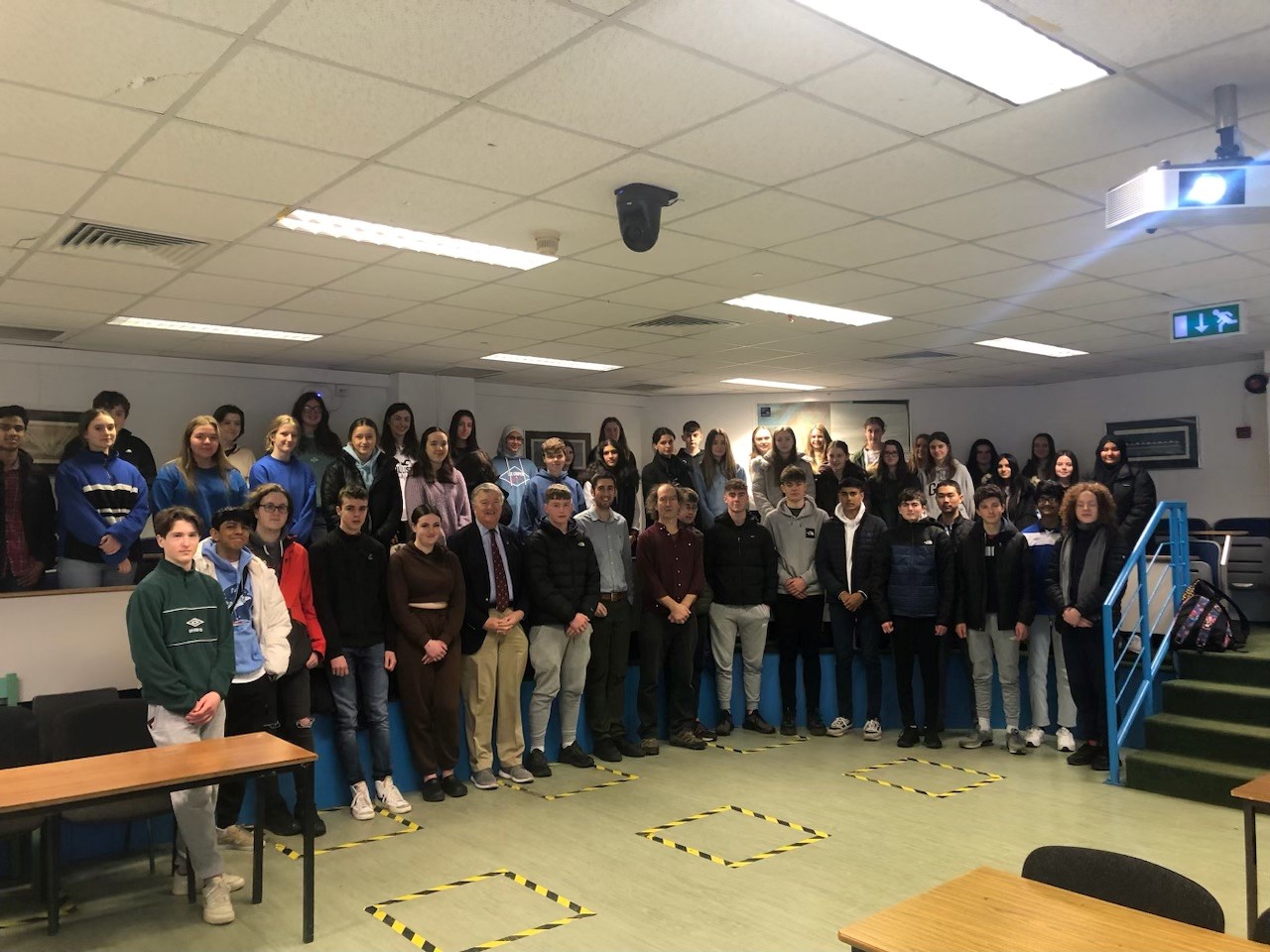
Trinity College Dublin hosts 50 Transition Year students for STEPS Engineers Week as employers aim to bridge engineering skills gap
Trinity College Dublin’s School of Engineering recently hosted 50 Transition Year students for three days to take part in seminars, field trips, and engineering workshops to encourage interest in the field of engineering. This event was organised by Professor Patrick Morrissey and was held as part of the STEPS Engineers Week which aims to provide primary and secondary school children with the opportunity to explore the creative world of engineering and the diverse opportunities a career in the sector can offer.
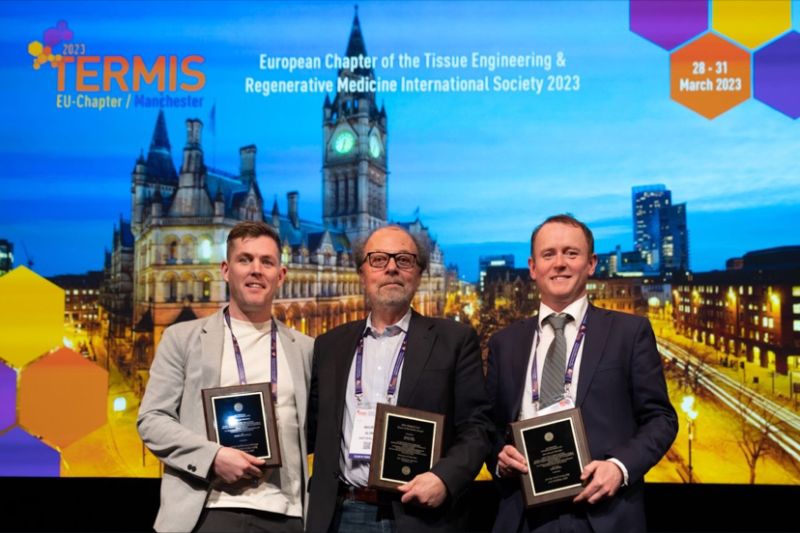
Awards sweep by TCD Biomedical Engineering at the Tissue Engineering and Regenerative Medicine Engineering Society (TERMIS) 2023 Meeting
Three Biomedical Engineering School of Engineering members have received prestigious awards at the TERMIS-EU 2023 meeting. The Tissue Engineering and Regenerative Medicine International Society is a leading international learned society dedicated to tissue engineering and regenerative medicine. At their recent 2023 EU meeting in Manchester UK Professor Danny Kelly, Professor Michael Monaghan and PhD candidate Tara Ní Néill were awarded the prestigious Mid Term Career Investigator, Robert Brown Early Career Investigator, and overall 1st prize Oral presentation prize respectively.

Pesticides detected in pollen and nectar may pose a long-term hazard for pollinators
Pesticides have been detected in flowers not targeted with the chemicals that could be an additional, underestimated threat to pollinators according to new findings by Trinity and DCU, published in the Science of the Total Environment.
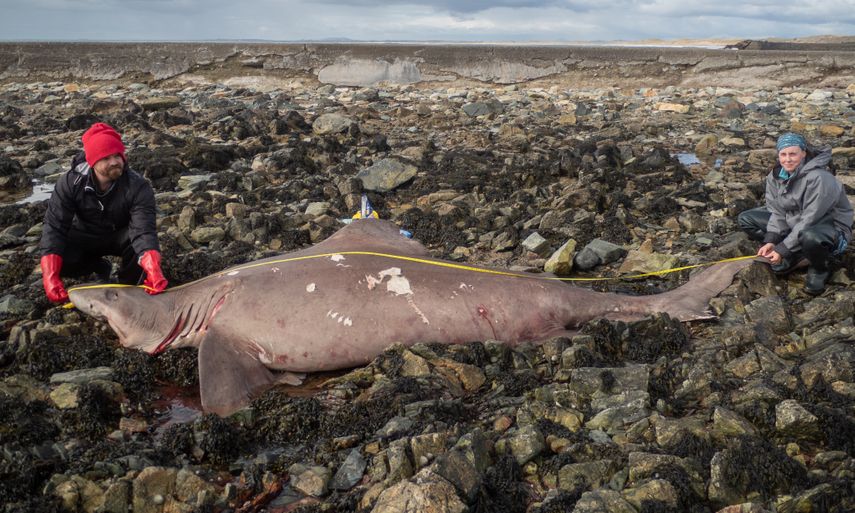
Rare 14-ft smalltooth sand tiger shark washes up on Wexford shore
A huge 14ft smalltooth sand tiger shark washed up at Kilmore Quay, Co. Wexford, this weekend. Scientists believe it to be the first official record of the species being found in Ireland’s waters.
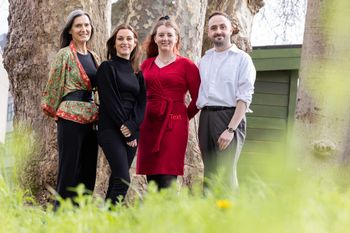
Project launched to support EU urban food sharing initiatives
This project builds directly on the success of Prof. Anna Davies’ award-winning SHARECITY project, which ran from 2016 to 2021 to assess the practicality and sustainability of food-sharing systems.
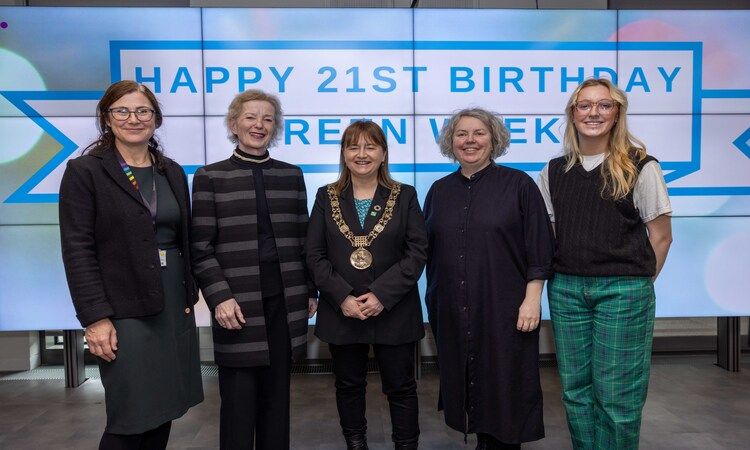
Green Week kicks off with launch and new sustainability awards
The launch of Trinity’s 21st annual Green Week: ‘Healthy Planet, Healthy People’ took place Monday morning with a 21st birthday theme at Tangent, Trinity’s Ideas Workspace.
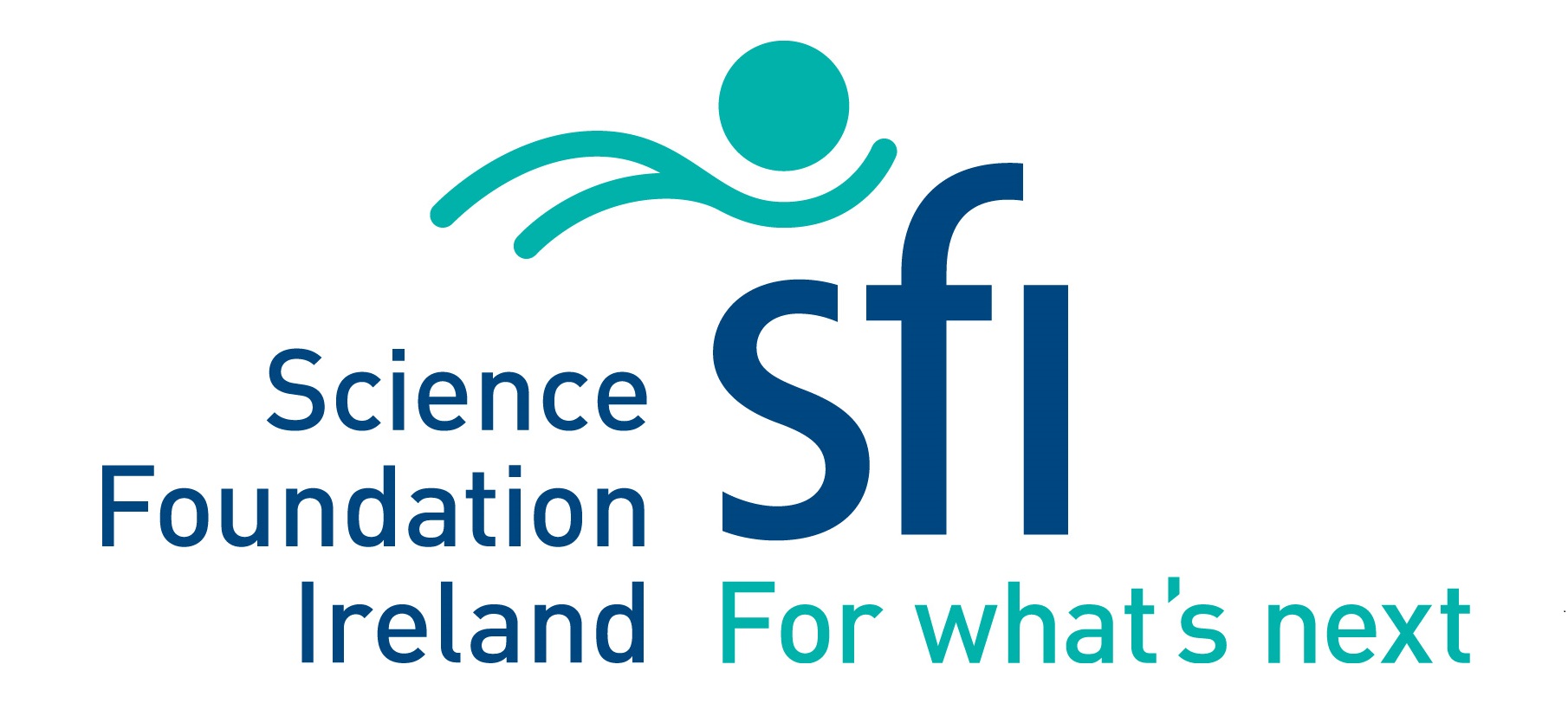
SFI Grant awarded for Smart Radio research
Science Foundation Ireland (SFI) awards grant to School of Engineering Assistant Professor Arman Farhang, supporting the development of novel technologies enabling communication through blockage in millimeter wave (mmWave) systems by creating smart radio environments.

Third year civil engineering students London trip
After a Covid-enforced hiatus over the last number of years, the annual third year civil engineering trip resumed last week. 25 students and 3 staff spent two days in London, visiting various sites of engineering interest, as well as enjoying some reading week downtime.

‘Team Phoenix
Six researchers from the Schools of Engineering and Computer Science and Statistics at Trinity scooped the top prize of €1500 as winners of the recent Air Quality Data Hack 2023 Event.
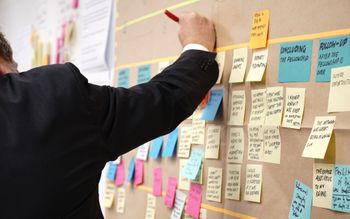
Five Trinity teams to inspire public engagement with STEM via SFI Discover Programme awards
The winning projects are among those to have secured funding in the latest Science Foundation Ireland Discover Programme competition, which is designed to empower and inspire deep public engagement with STEM education.
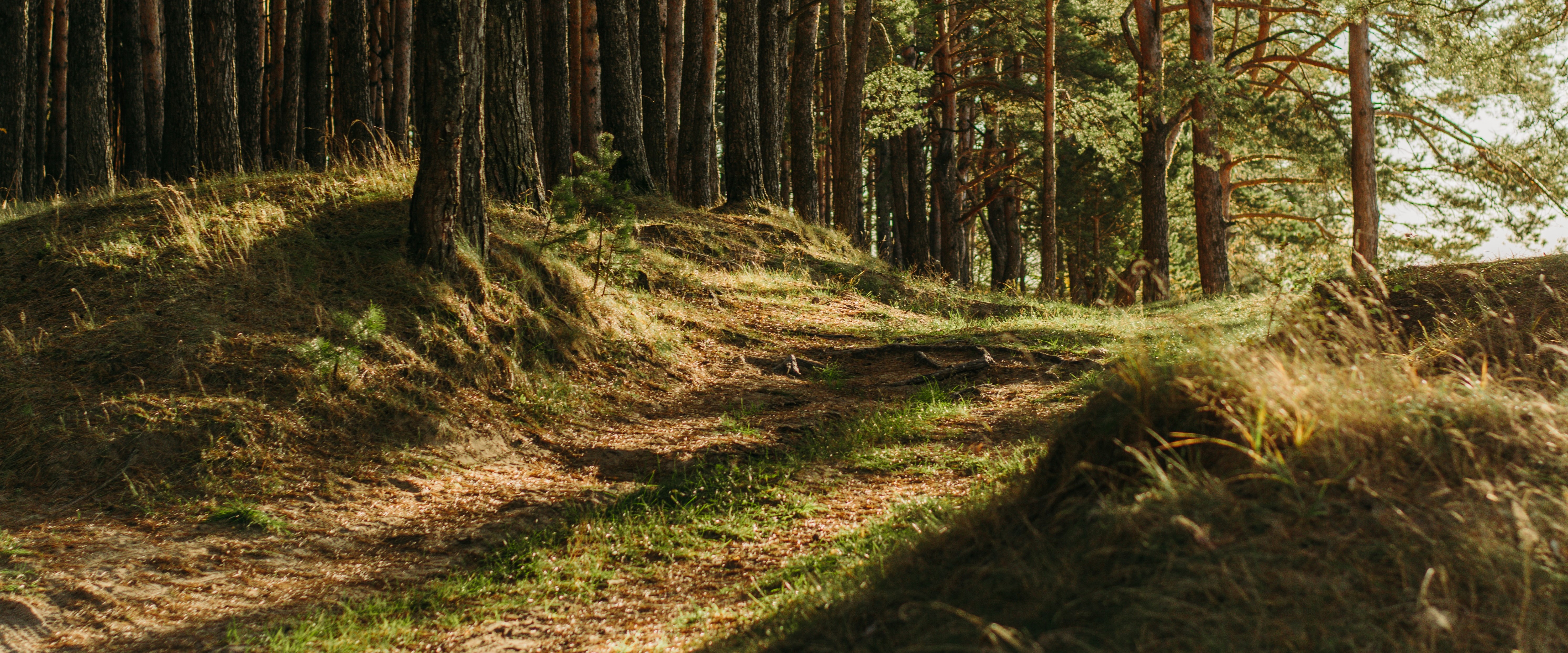
Ireland has lost almost all of its native forests – here is how to bring them back
Despite its green image, Ireland has surprisingly little forest. Across Europe, nations average around 35% forest cover but in Ireland the figure is just 11%, one of the lowest on the continent.
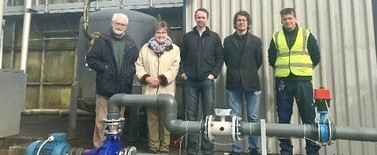
The Dŵr Uisce project | Final Event: Delivering Solutions for the Sustainability of the Water-Energy Nexus
The Dŵr Uisce project led by Trinity College Dublin in partnership with Bangor University, has run for over six years and has made significant impactful contributions on the sustainability of the water related energy use in Ireland and Wales. The multidisciplinarity project has been led by Dr. Aonghus McNabola, Dr John Gallagher and Prof. Biswajit Basu in the School of Engineering, and Prof. Paul Coughlan in the Trinity Business School.
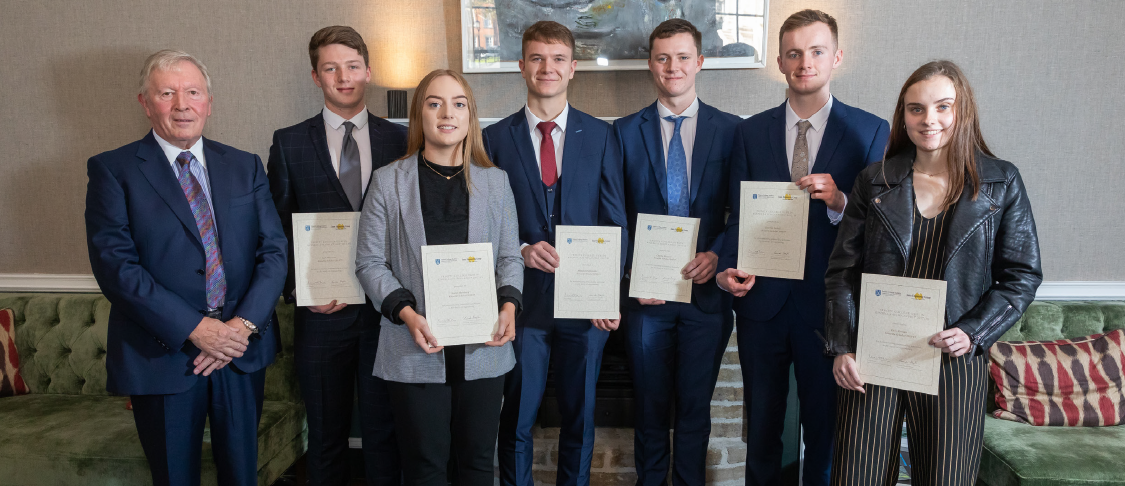
Applications Now Open for Eric and Barbara Kinsella Scholarships
Trinity College Dublin School of Engineering is excited and grateful to announce that applications are now open for the Eric and Barbara Kinsella Scholarships. These scholarships were established by Eric and Barbara Kinsella with the goal of supporting talented engineering students in reaching their full potential.

7 Trinity Teams Shortlisted for National Challenge Fund
Minister for Further and Higher Education, Research, Innovation and Science Simon Harris has today (Monday, 13 February) announced the first 26 teams to receive funding under the €65 million National Challenge Fund – a competition to find solutions to major environmental and societal issues.
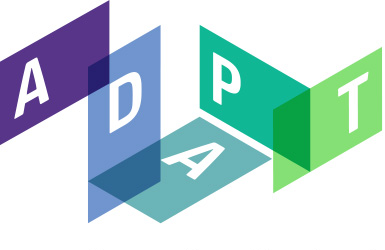
Marie-Curie Doctoral Network led by SCSS professor
LegumeLegacy is a Marie Skłodowska-Curie Doctoral Network commencing in February 2023 and is led Professor Caroline Brophy of the School of Computer Science and Statistics, Trinity College Dublin and the ADAPT SFI Research Centre.
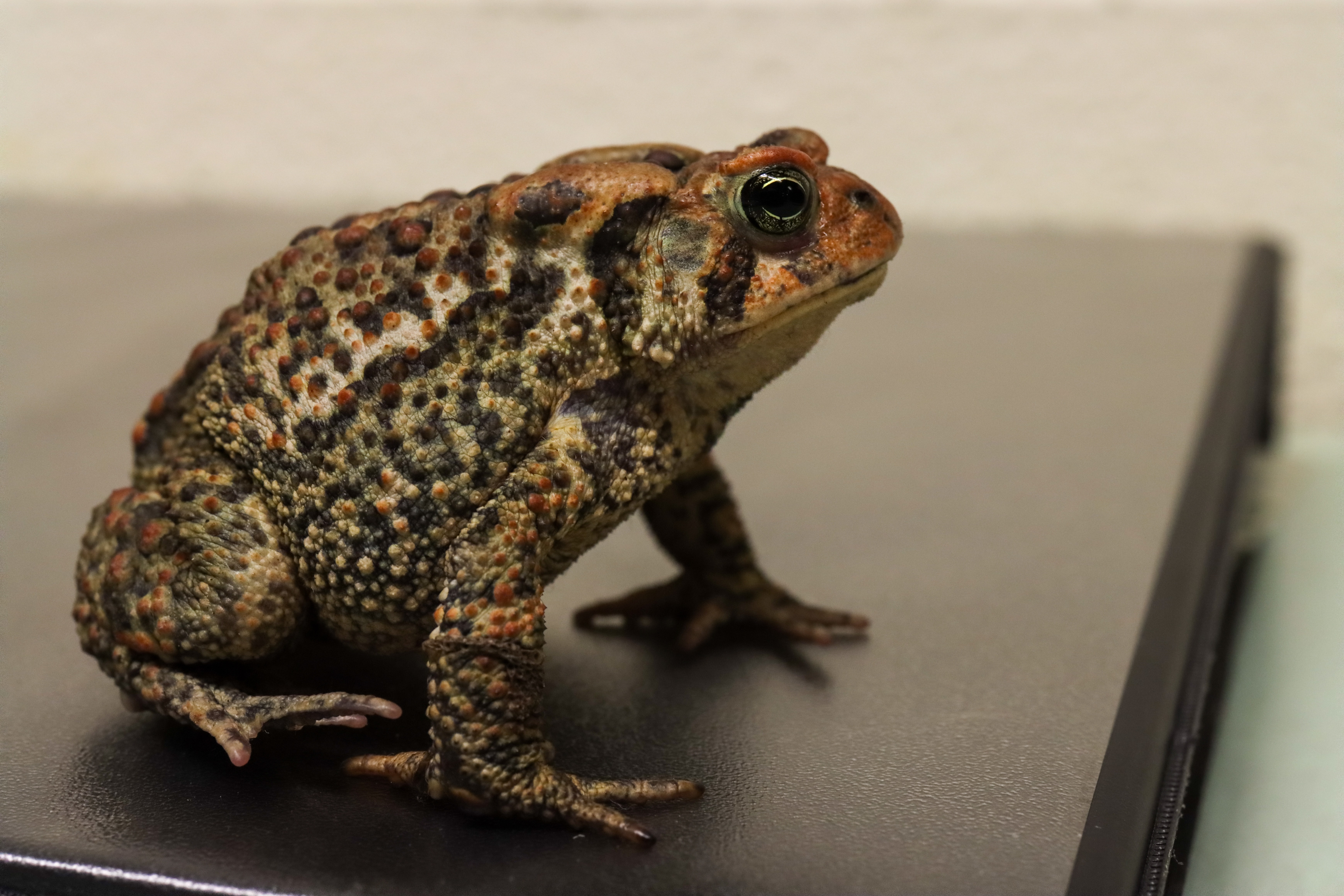
Ancient amphibians had their bones cooked
Scientists have solved a decades-long mystery as to why ancient tetrapods – amphibian-like creatures that lived over 300 million years ago – preserved in one of Ireland’s most important fossil sites seemingly had their bones cooked after they died.

Five students receive first Three Ireland Connect to STEM scholarships for women
Administered by the Faculty of STEM and Trinity Access and worth €20,000 each over a four-year undergraduate degree programme, the scholarship scheme to benefit 25 students in total aims to attract women from Ireland to study STEM subjects at Trinity.

New badger research has implications for managing bovine TB
Badgers living with helminth parasite infections are more likely to have tuberculosis (TB), according to new research, which may influence policymakers trying to manage TB infection within cattle and wildlife populations

New project will equip police with advanced technologies to combat disinformation linked to crime
VIGILANT is a €4 million Horizon Europe project aimed at curbing the spread of disinformation and combating its negative effects such as promoting hate speech, human trafficking, and bogus medical cures

15 ways to reforest the planet: international scientists call for decade of global action
Scientists are calling for a “decade of global action” to reforest the planet following the publication of new research involving botanists from Trinity.
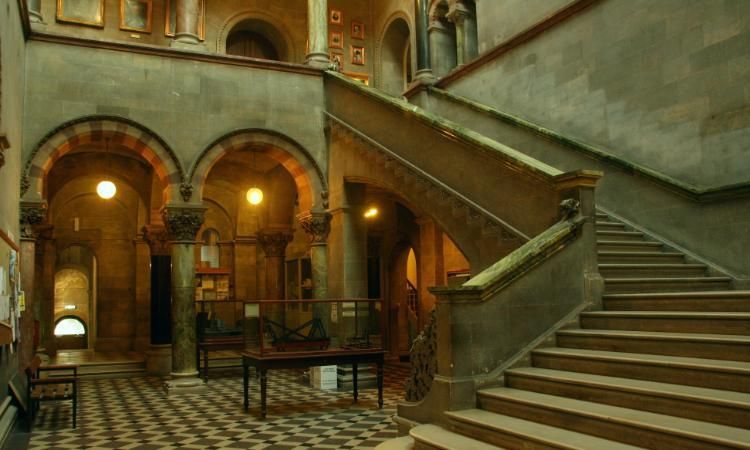
Connemara Marble designated a Heritage Stone
Connemara Marble, seen to beautiful effect in Trinity College Dublin’s iconic Museum Building, has been designated a Heritage Stone. One of ten stone types to be designated as such this year, Connemara Marble is now one of only 32 Heritage Stones worldwide.
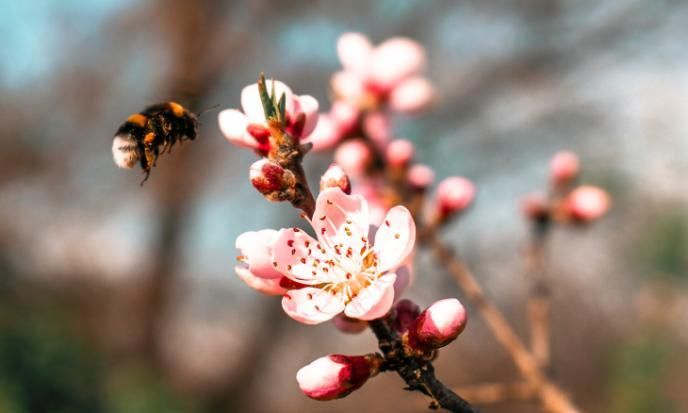
Ten-year dataset yields vital clues for supporting Ireland’s precious pollinators
Ecologists from Trinity College Dublin have unearthed vital clues for how we can best support Ireland’s precious pollinators after interrogating a ten-year dataset containing information from 119 sites across the country.

Marine biologists team up with tiger sharks to help discover the world’s largest seagrass ecosystem
Today one of the biggest marine discoveries of the last decade is being announced: the largest seagrass ecosystem in the world, an area in The Bahamas estimated to be up to 92,000 km2. Published in the scientific journal Nature Communications, the study details a unique partnership with tiger sharks that played a key role in mapping and ultimately validating the main findings.
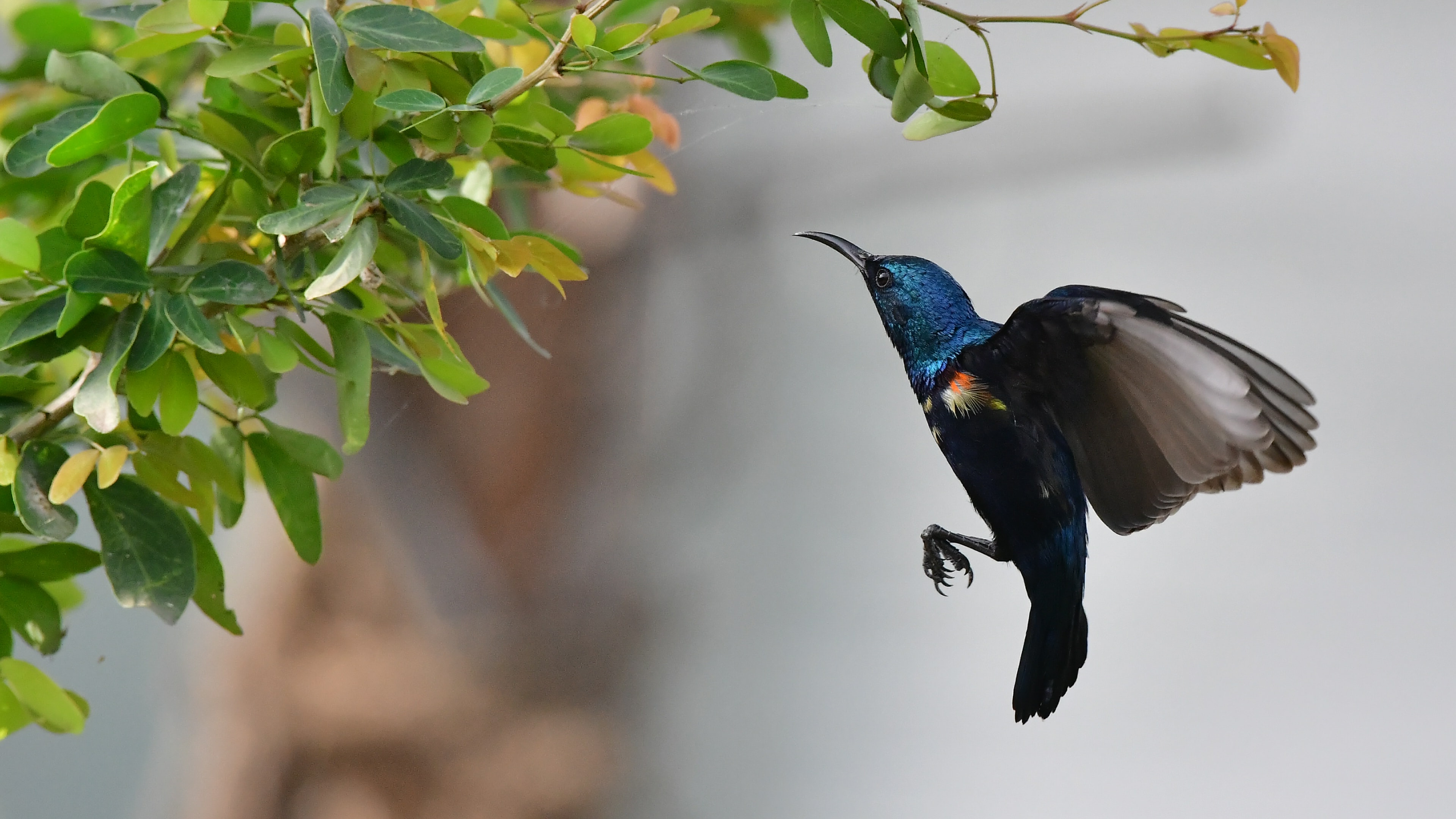
Several beautiful new bird species found on remote Indonesian islands
Zoologists from Trinity, working with a research team in Indonesia, have found several new species of colourful, tropical sunbirds. The zoologists have identified a new species, the “Wakatobi Sunbird” (Cinnyris infrenatus), which lives on the tiny Wakatobi Islands in central Indonesia.

Trinity offers a sneak-peak at the sweet spot for innovation at the SUGAR Global Kick Off 2022/23
Innovation thought leaders will unveil the secrets behind innovating so that companies can take their products and services to the next level, and outline how to effectively engage in collaborative innovation at the SUGAR Global Kick Off 2022/23, which is this week hosted by Trinity.

New machine-learning technique for classifying key immune cells
The technique accurately classifies the state of macrophages, which is important because these cells can modify their behaviour and act as pro- or anti-inflammatory agents in the immune response. As a result, the work has a suite of implications for research and has the potential to one day make major societal impact.

Pioneering system ensures money doesn not follow water down the drain
National Trust Cymru have been working with researchers from Trinity and Bangor University on a pioneering heat recovery system at Penrhyn Castle. Results show it reduces energy consumption by 230 kWh per month, equivalent to £1,770 per annum in heat savings.

Scientists classify the entire planet’s ecosystems for the first time
A global cross-disciplinary team of scientists led by UNSW Sydney researchers, and including those from Trinity College Dublin, has developed the first comprehensive classification of the world’s ecosystems across land, rivers and wetlands, and seas. The ecosystem typology will enable more coordinated and effective biodiversity conservation, critical for human wellbeing.
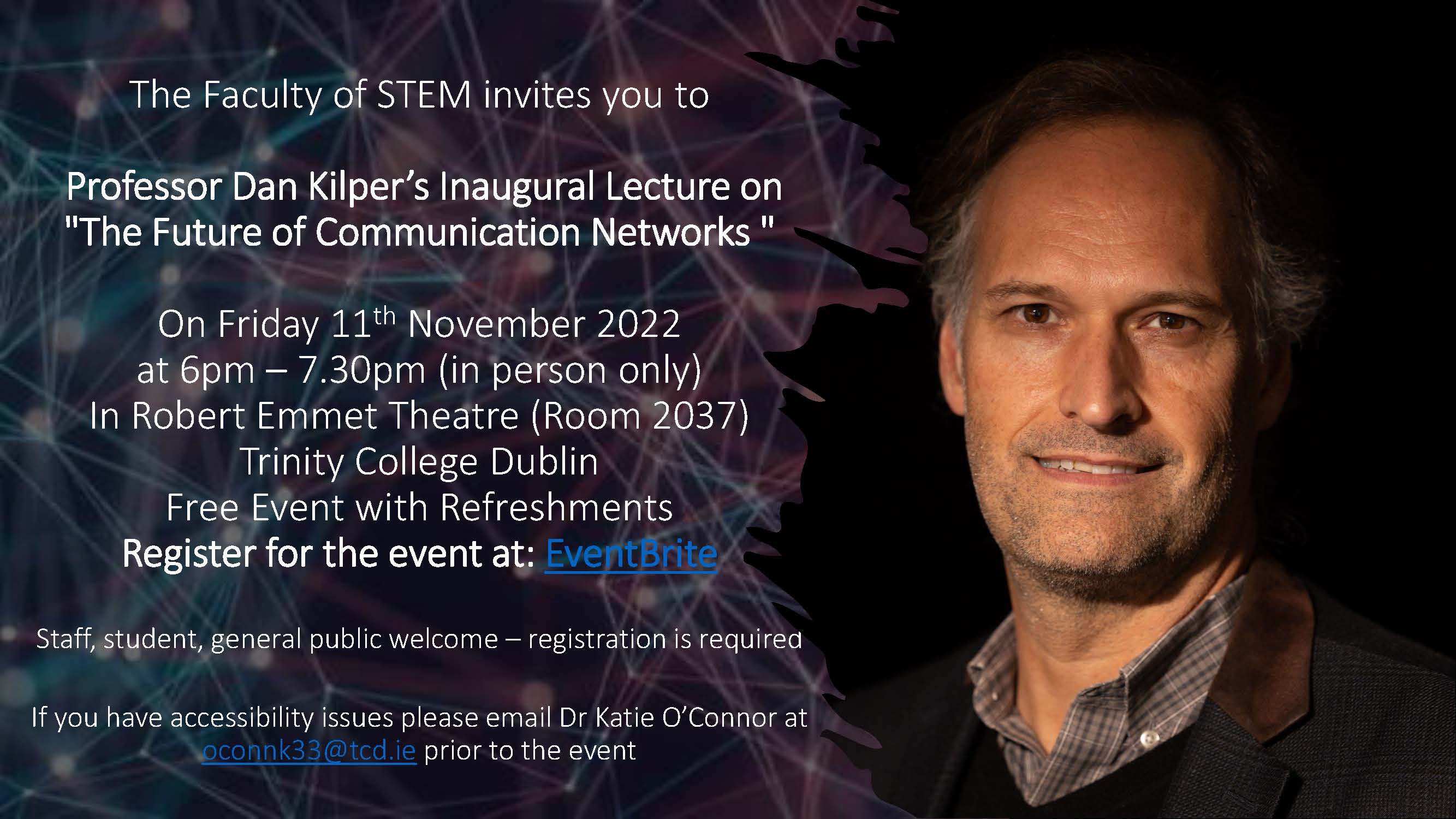
Trinity Inaugural Lecture - Professor Daniel Kilper - 11th November 2022
Prof Daniel Kilper will present his inaugural lecture on The Future of Communication Networks which will take place on Friday 11th November 2022 at 6pm – 7.30pm in the Robert Emmet Theatre

Pioneering system ensures money doesn not follow water down the drain
National Trust Cymru have been working with researchers from Trinity and Bangor University on a pioneering heat recovery system at Penrhyn Castle. Results show it reduces energy consumption by 230 kWh per month, equivalent to £1,770 per annum in heat savings

Fishing for sharks: hot or not?
New research from marine scientists raises potential red flags for sharks that are caught and released by anglers. The team has discovered that the oceans iconic predators typically spike temperatures after they have been caught, which may have physiological and behavioural impacts.
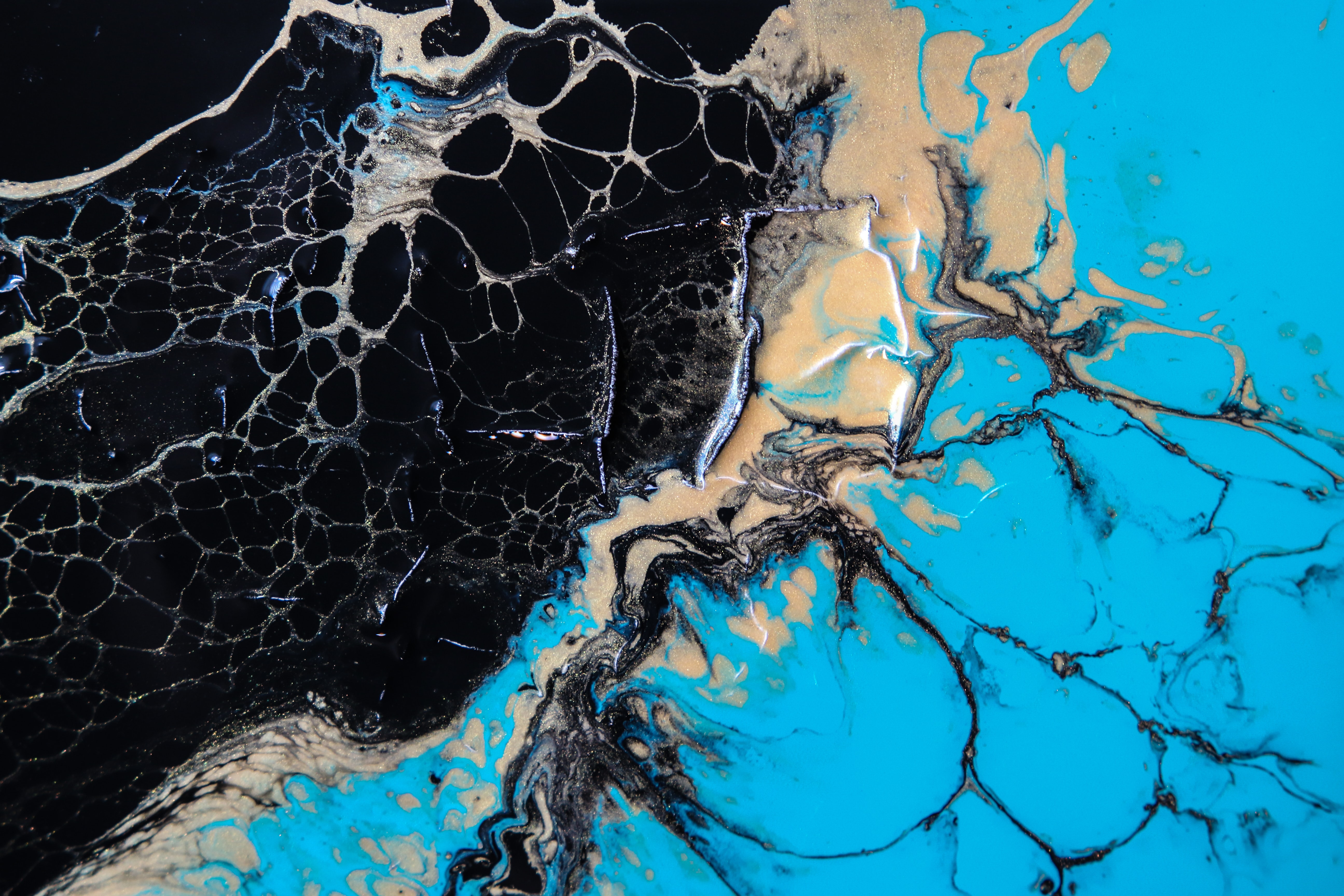
Science and art collide to open eyes and minds to impact of climate change on storm surge levels around Irish coastline
The Línte na Farraige project’s visual light installations, by Finnish artists Timo Aho and Pekka Niittyvirta, indicate the projected rise in sea levels from future storm surges. Installations will open at Spanish Arch, Galway, and will be followed by other coastal locations in the coming months.

The synthetic rocks helping us understand how sought-after rare earth elements form
Researchers from Trinity have shed new light on the formation of increasingly precious rare earth elements (REEs) by creating synthetic rocks and testing their responses to varying environmental conditions. REEs are used in electronic devices and green energy technologies, from smartphones to e-cars.

Slowing of continental plate movement controlled timing of Earths largest volcanic events
Scientists have shed new light on the timing and likely cause of major volcanic events that occurred millions of years ago and caused such climatic and biological upheaval that they drove some of the most devastating extinction events in Earths history.

Boxing clever: the simple conservation strategy saving threatened Roseate terns
A simple conservation strategy deployed by conservationists and scientists from BirdWatch Ireland, Trinity College Dublin and University College Dublin is greatly assisting in the extraordinary success of threatened Roseate terns on Rockabill Island, off the coast of Dublin

Trinity partners with ESB in new pilot e-bike project in Dublin suburbs
Researchers from the School of Engineering at Trinity are working with ESB, micro-mobility providers Bleeper and Moby, innovation partner Dogpatch Labs and co-founding partner Interreg North-West Europe to examine a new pilot e-bike project in the Dublin suburbs.

Trinity researchers contribute to new radon map
Trinity researchers have laid the foundation for new legislative radon map in Ireland. The original research, published in 2017, in collaboration with Geological Survey Ireland (GSI) showcased a novel methodology to combine geological information with measurements of indoor radon concentrations to produce a stepwise change in how radon is mapped.

Trinity researchers to use machine learning techniques to optimise wind farm performance
Researchers from Trinity, led by Dr Breiffni Fitzgerald, Ussher Assistant Professor in the School of Engineering, will use Science Foundation Ireland (SFI) funding of around €500,000 with machine learning techniques to optimise wind farm performance.

Irish scientists tag giant porbeagle shark off Donegal coast
An international team of scientists led by Trinity College Dublin tagged and released a record-breaking 2.8 m porbeagle shark, Lamna nasus, off the coast of Donegal last week.

Biodiversity loss has knock on effects on global markets
Biodiversity losses in countries with smaller, less-developed economies, impact large, developed economies, according to a new study.

Groundwater in the spotlight on World Water Day
For the first time, the annual United Nations World Water Day today focuses specifically on groundwater, with the theme Groundwater: making the invisible visible highlighting that this large and precious resource is hidden and underappreciated.

How to future-proof your education & career in Engineering, Environment & Emerging Technologies
Join the Trinity College Dublin E3 Postgraduate Virtual Event on Friday the 4th of February 2022 at 10am Irish Time. Come along and find out how Trinity will future-proof your education & career in Engineering, Environment & Emerging Technologies. At this info session you will have the opportunity to listen to a live panel discussion with students, alumni, academic, local authority and industry representatives to learn more about Engineering, Environment and Technology education at Trinity. There will be a series of Q&A sessions at the end.

Transforming STEM Education at Trinity
Join the Trinity College Dublin E3 Undergraduate Virtual Event on Friday the 3rd of December 2021 at 10am Irish Time. Come along and find out how Trinity is transforming the STEM education through its ambitious project –E3 (Environment, Engineering & Emerging Technologies). At this info session, you will have the opportunity to listen to a live panel discussion comprising of Trinity E3 faculty staff, current students, and a Trinity career consultant to learn more about the STEM education at Trinity. There will be a series of Q&A sessions to answer any questions on curriculum, admissions, scholarships, student experience and future employability opportunities.
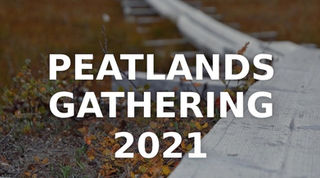
Profs. Paul Johnston and Laurence Gill from the Department of Civil, Structural and Environmental Engineering to speak at COP26 event
Profs. Paul Johnson and Laurence Gill from the Department of Civil and Environmental Engineering are speaking at a COP26 event - the UNEP Peatlands PAvilion - Wednesday November 10th.

Trinity begins work to add 1,600 student places to tackle society’s problems
Trinity College Dublin today turned the sod on a project that will create 1,600 new student places in STEM subjects in the coming years to help tackle societal challenges such as climate change.
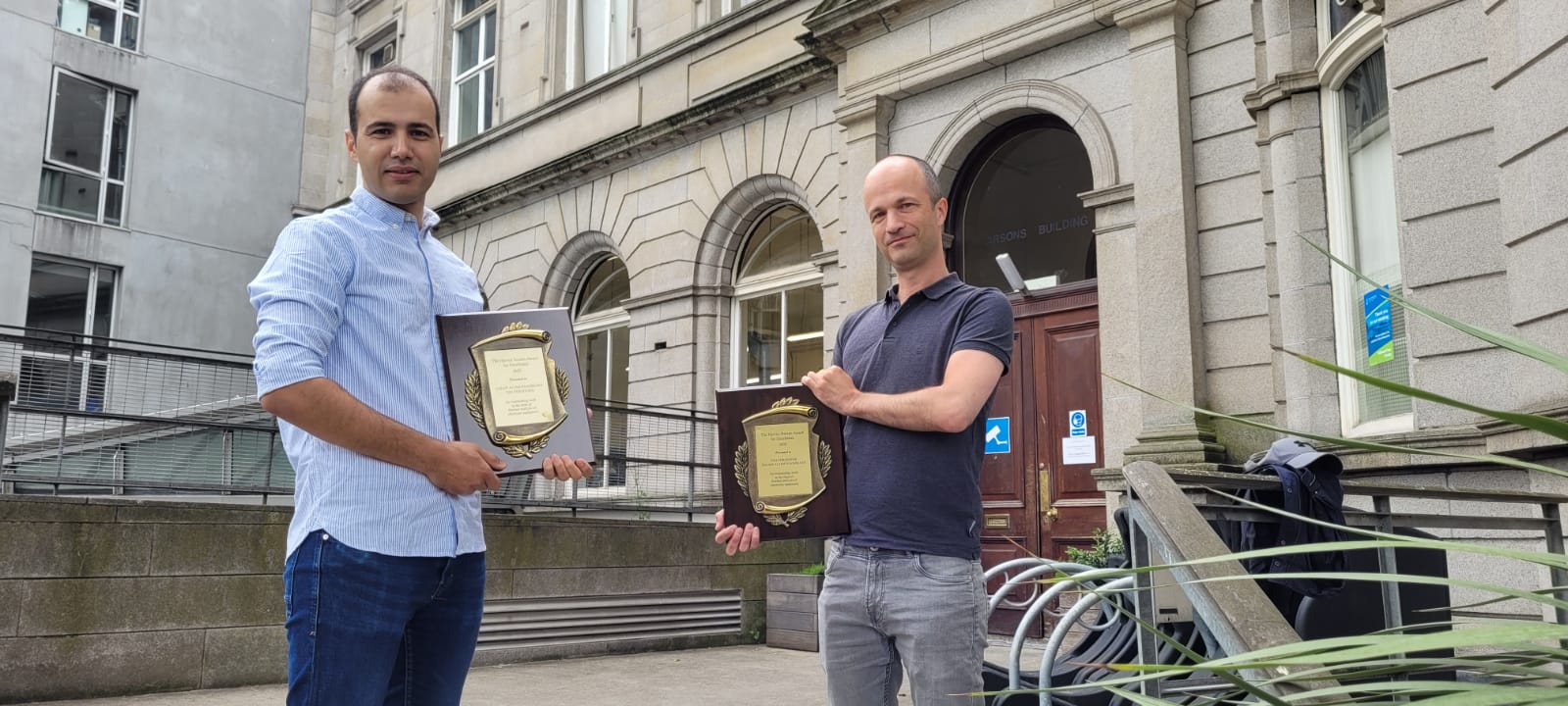
Sajad Alimohammadi and Tim Persoons win 2020 Harvey Rosten Award for Excellence for the development of an alternative air mover for data centre servers
The Harvey Rosten Award for Excellence is awarded annually in recognition of achievements in the field of thermal analysis of electronics equipment, and the thermal modelling of electronics parts and packages.
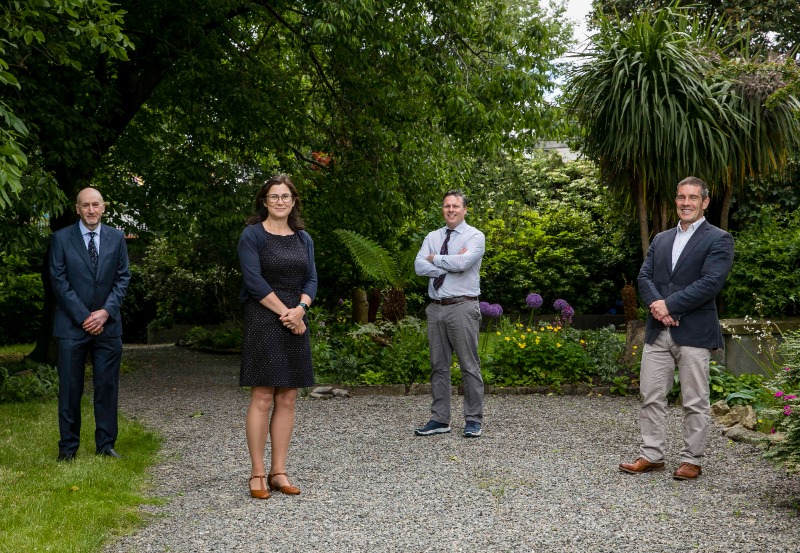
Kinsella Challenge-Based E3 awards go to 4 multi-disciplinary projects
Four innovative multi-disciplinary research projects at Trinity College Dublin will share a total of €2 million in funding in the inaugural Kinsella Challenge-Based E3 Multi-Disciplinary Project Awards
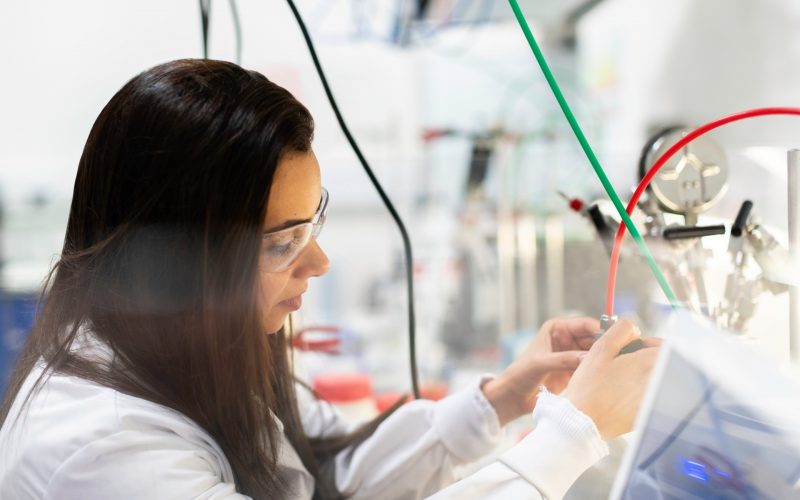
Trinity secures three more Athena SWAN awards for commitment to gender equality
Three Schools at Trinity College Dublin have secured Athena SWAN Bronze awards in the latest round of awards to recognise commitment to gender equality.

Postgrad Options 2021: Spotlight on courses around the country - MSc in Smart & Sustainable Cities
This new and very timely one-year, full-time course at Trinity takes a novel approach to the study of smart and sustainable urbanism.

My daughter wants to help tackle climate change. Are there courses in this field?
Trinity College says its E3 education is designed to give graduates the skills they need to create solutions that enable society to live sustainably and equitably.
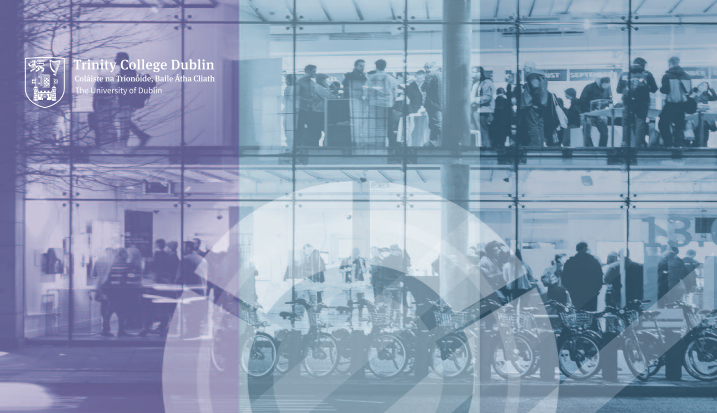
Interested in learning more about smart and sustainable cities?
Read a featured article from the Council Journal about the new MSc in Smart and Sustainable Cities at Trinity.
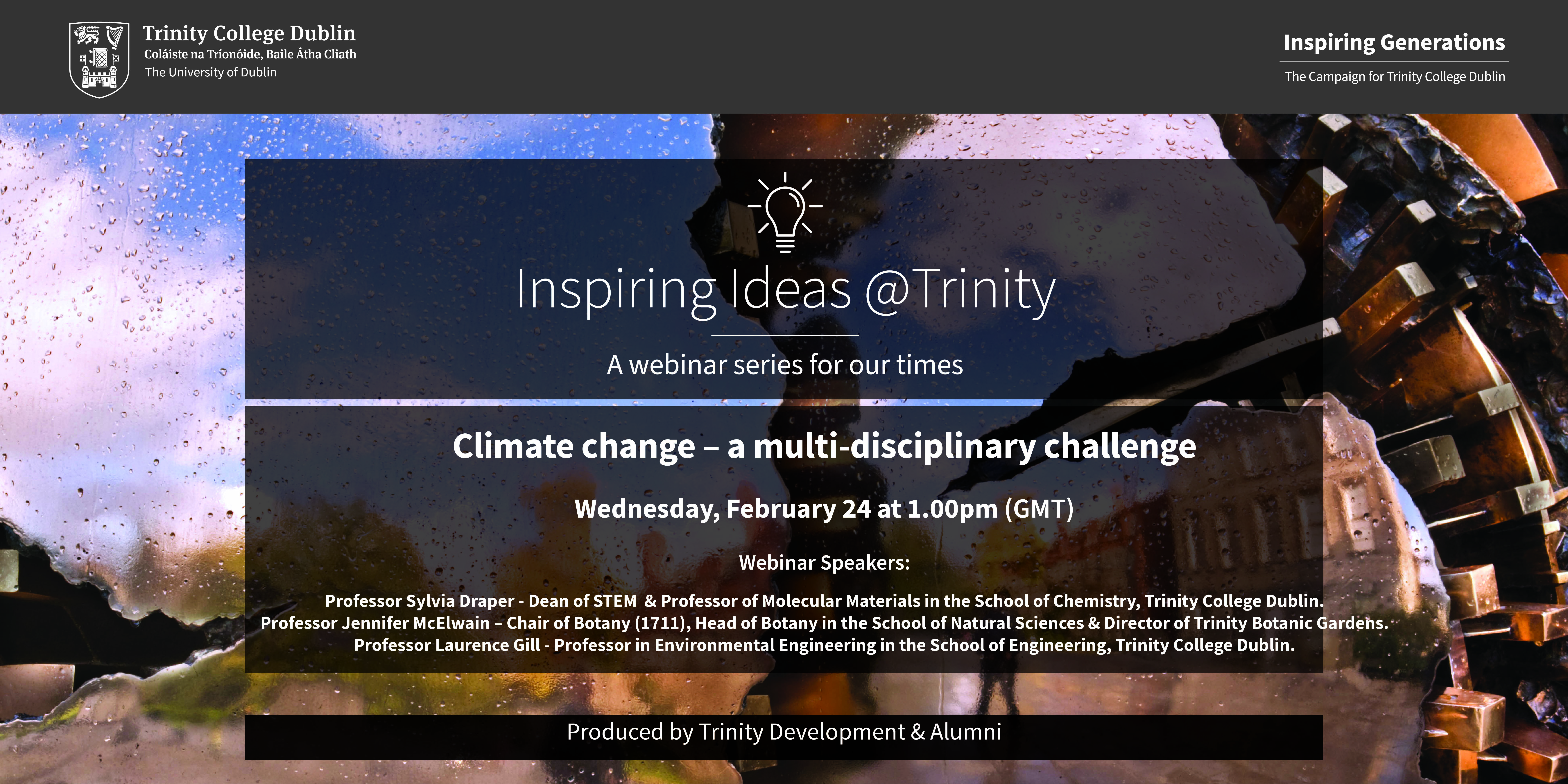
Trinity webinar: Climate change – a multi-disciplinary challenge - Wed 24th of Feb
In this webinar, Trinity’s Dean of the Faculty of Science, Technology, Engineering and Mathematics Prof. Sylvia Draper, will lead a panel discussion with Prof. Laurence Gill (Environmental Engineering) and Prof. Jennifer Mc Elwain (Chair of Botany) on how Trinity’s research and educational programmes are informing our understanding of the drivers and impacts of climate change and the solutions emerging from Trinity’s research that are informing government policy on mitigating the effects of climate change.

Secondary students win Trinity College Dublin E3 Global Challenges Award
Two students (Yaduvir Harhangi and Marton Goz) from Synge Street CBS, Dublin, won the Trinity College Dublin E3 Global Challenges Award for their team project at last week’s BT Young Scientist and Technology Exhibition (BTYSTE)
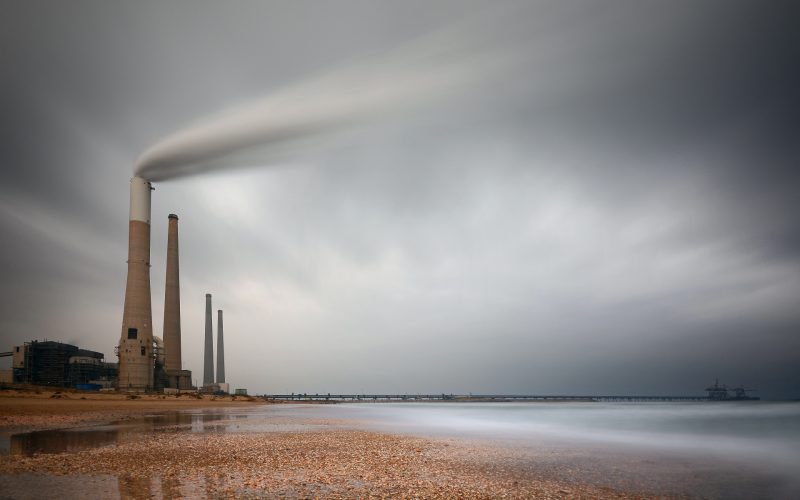
Trinity researchers involved in new €5 million climate change project, Terrain-AI
Researchers from Trinity are among a collaborative group seeking to improve our understanding of the impact of human activity on land use and how it relates to climate change as part of a new €5 million project, Terrain-AI.

Professor Sylvia Draper, Dean of the Faculty of Engineering, Mathematics & Science interview as part of the 2020 Women in STEM campaign.
The 2020 Women in STEM campaign featured exclusive content from key thought leaders and industry voices about the importance of women being equally represented in STEM careers

The Global Pandemic from Transnational Perspectives
The Consortium for Advanced Studies Abroad (CASA) has organised a forthcoming public lecture series on the global pandemic

Professor Sylvia Draper, Dean of the Faculty of Engineering, Mathematics & Science talks about E3 and its programmes in a Newsweek Educational Insight
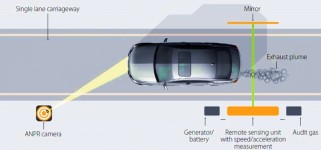
Researchers kick off Ireland’s first project to measure real-world driving emissions using remote sensing

Keeping it cool – Trinity team greatly enhancing viability of solar panels

Crowd simulation system visualises social distancing on campus
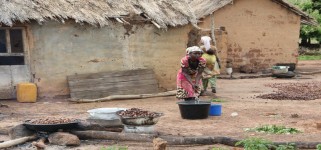
Birds, bees and butter – biodiversity crucial for shea production in West Africa

Trinity engineers use 3D printers at home in battle to tackle shortage of PPE
Trinity Business School was featured recently in the Sunday Business Post. Focusing on the School’s high growth strategy, the article spoke about our suite of postgraduate programmes and the new offerings available in 2016/17.
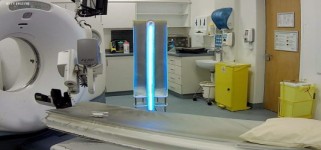
Meet Violet – the robot on a mission to tackle COVID-19
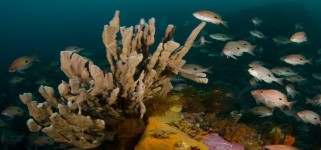
Global climate change will affect fish sizes and ocean food webs
New research by a collaborative team of scientists suggests that global climate change will affect fish sizes in unpredictable ways and, consequently, impact complex food webs in our ocean

